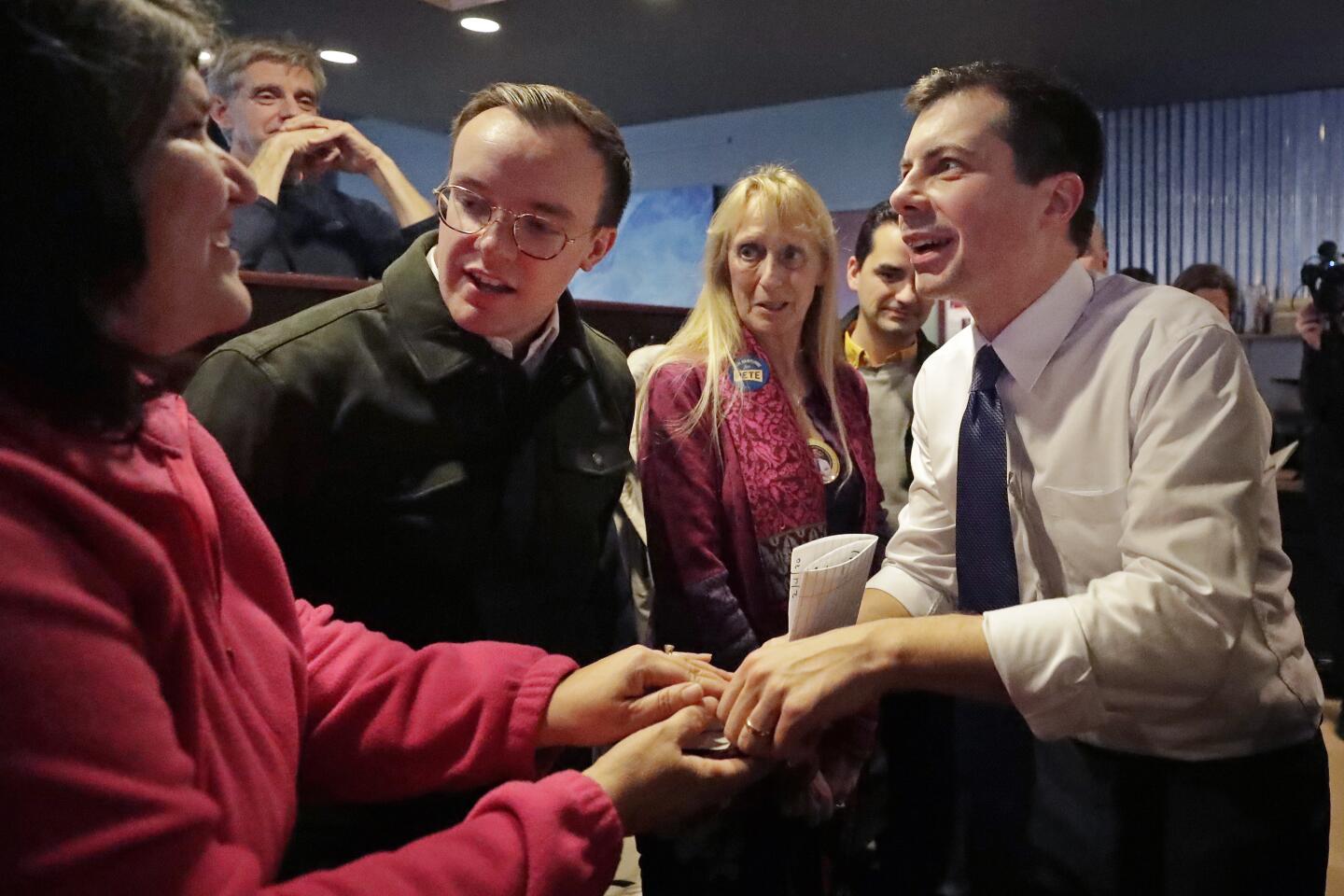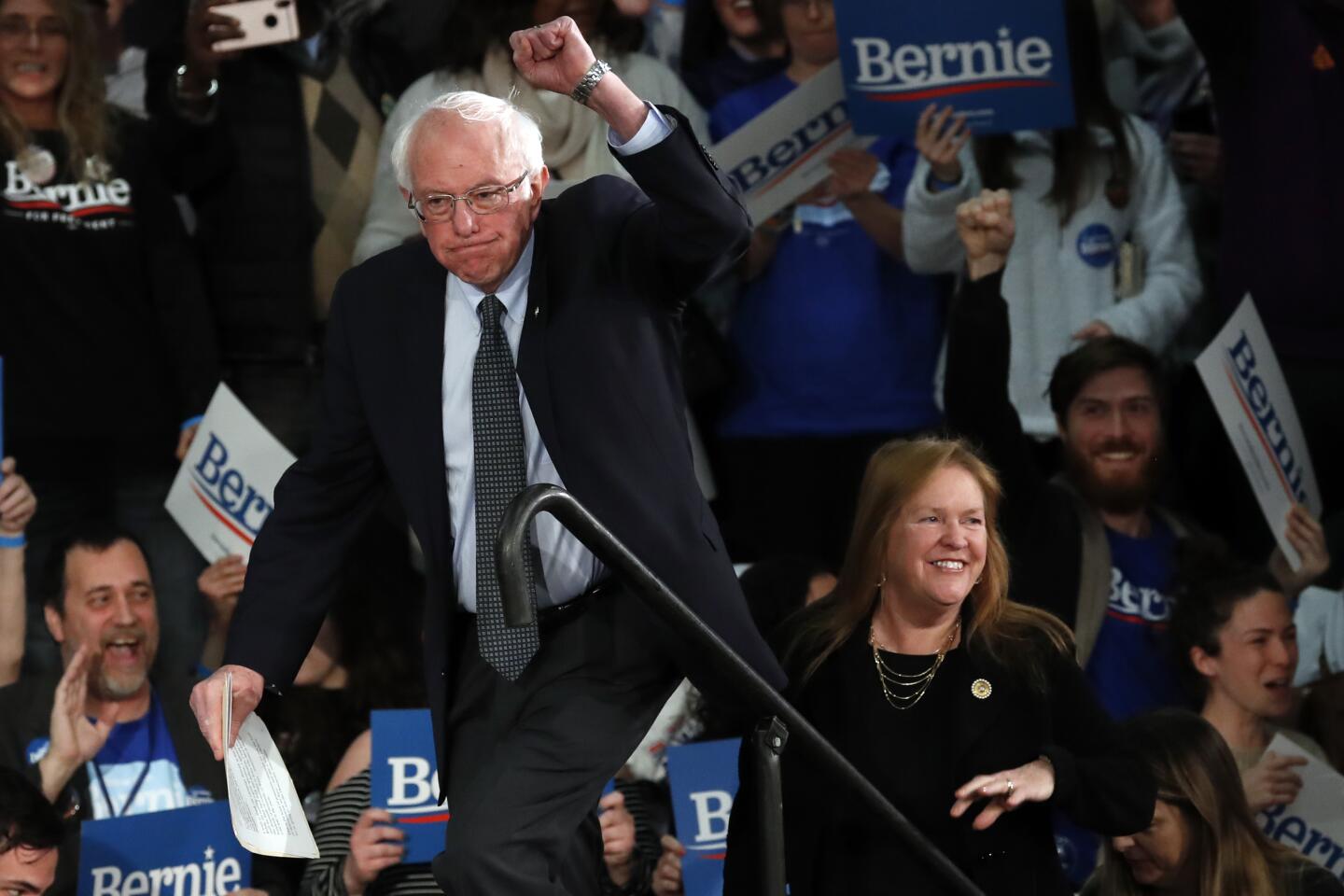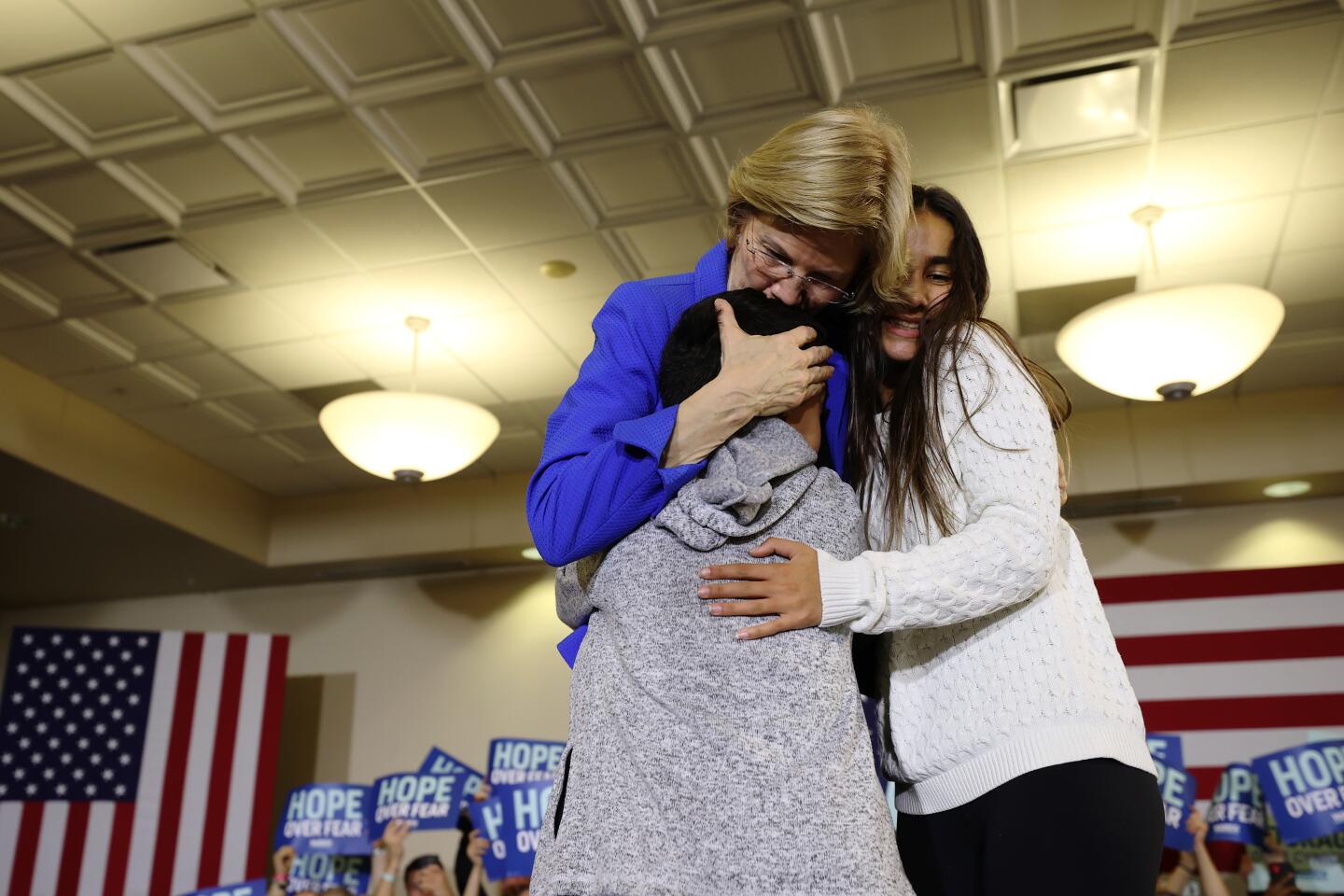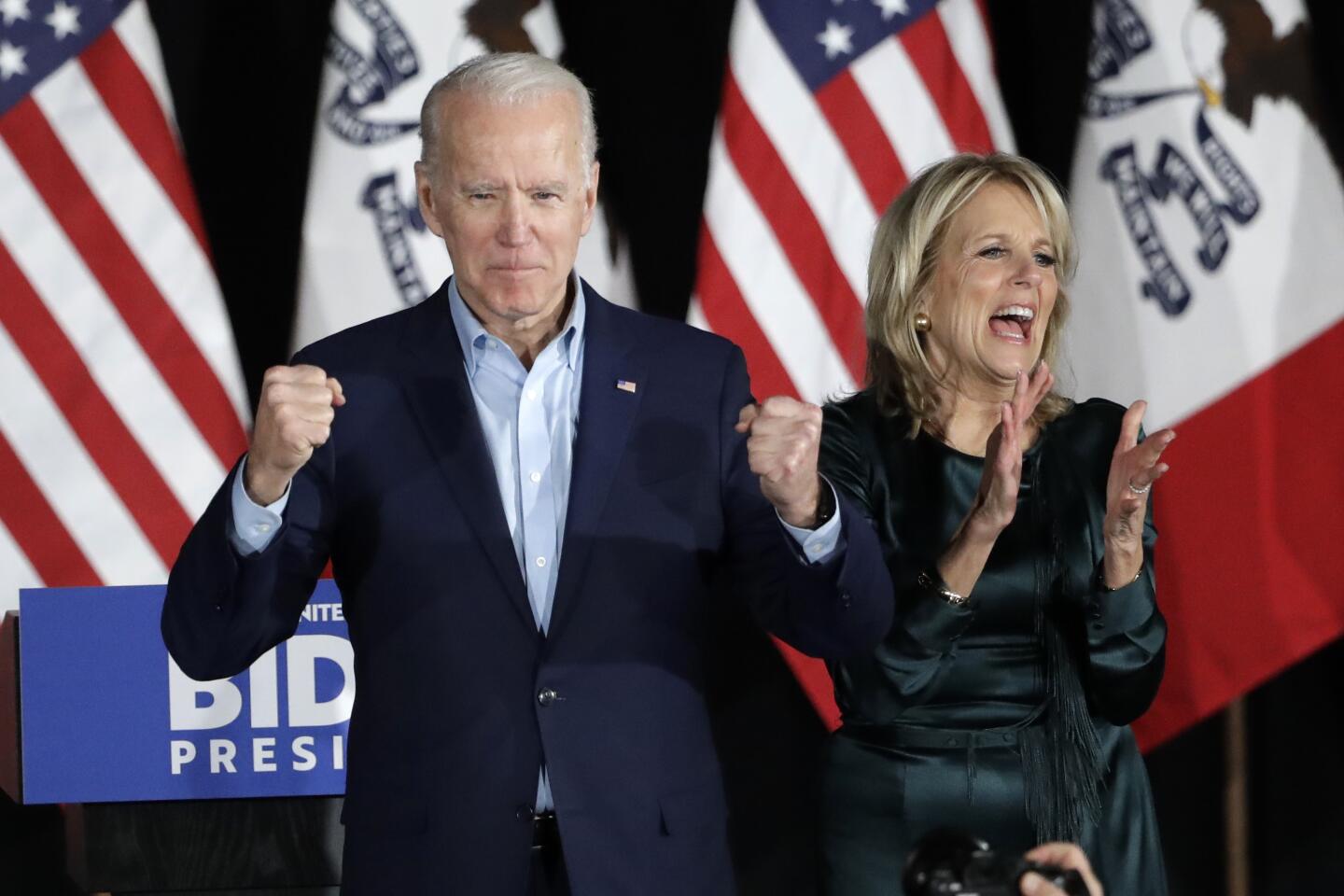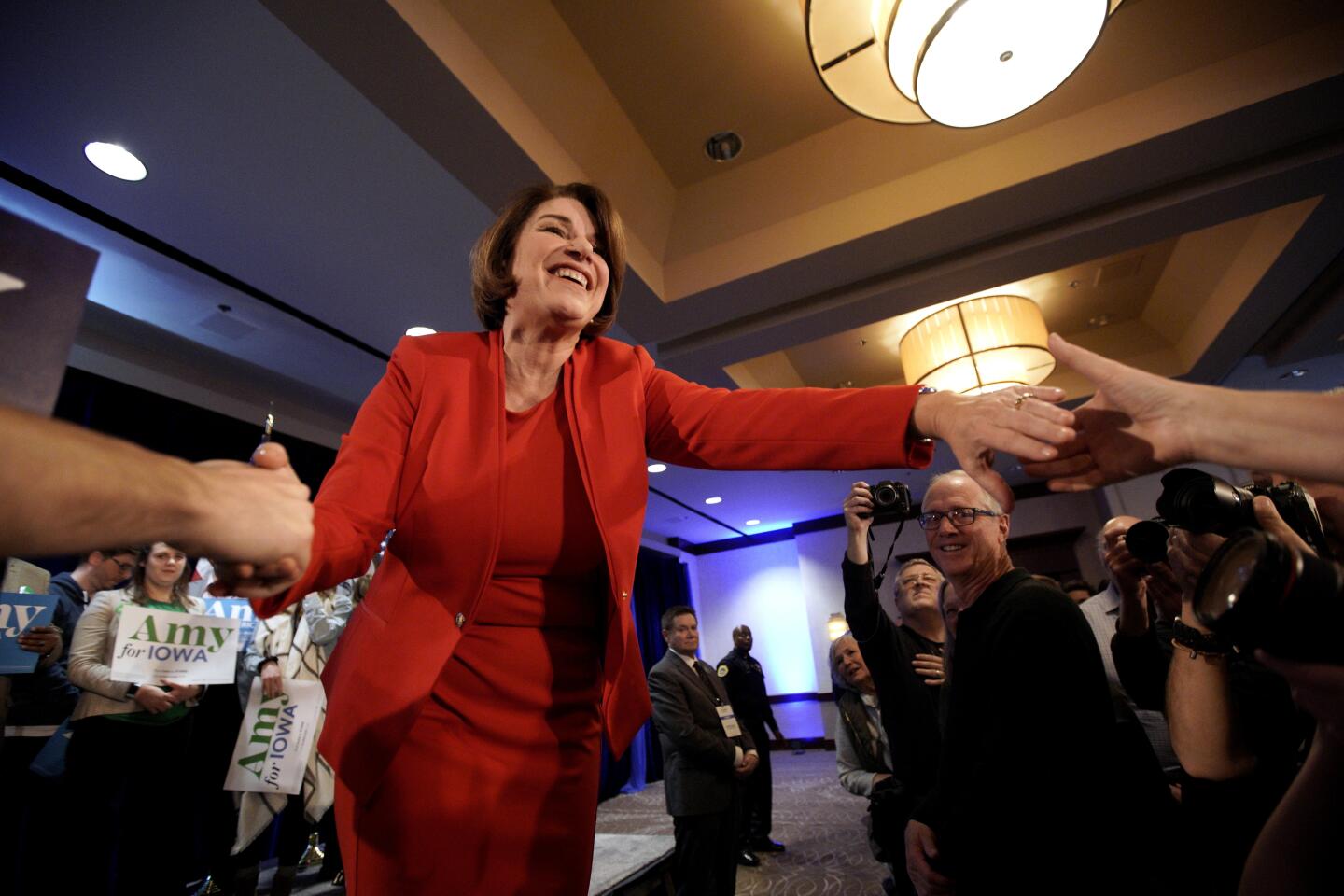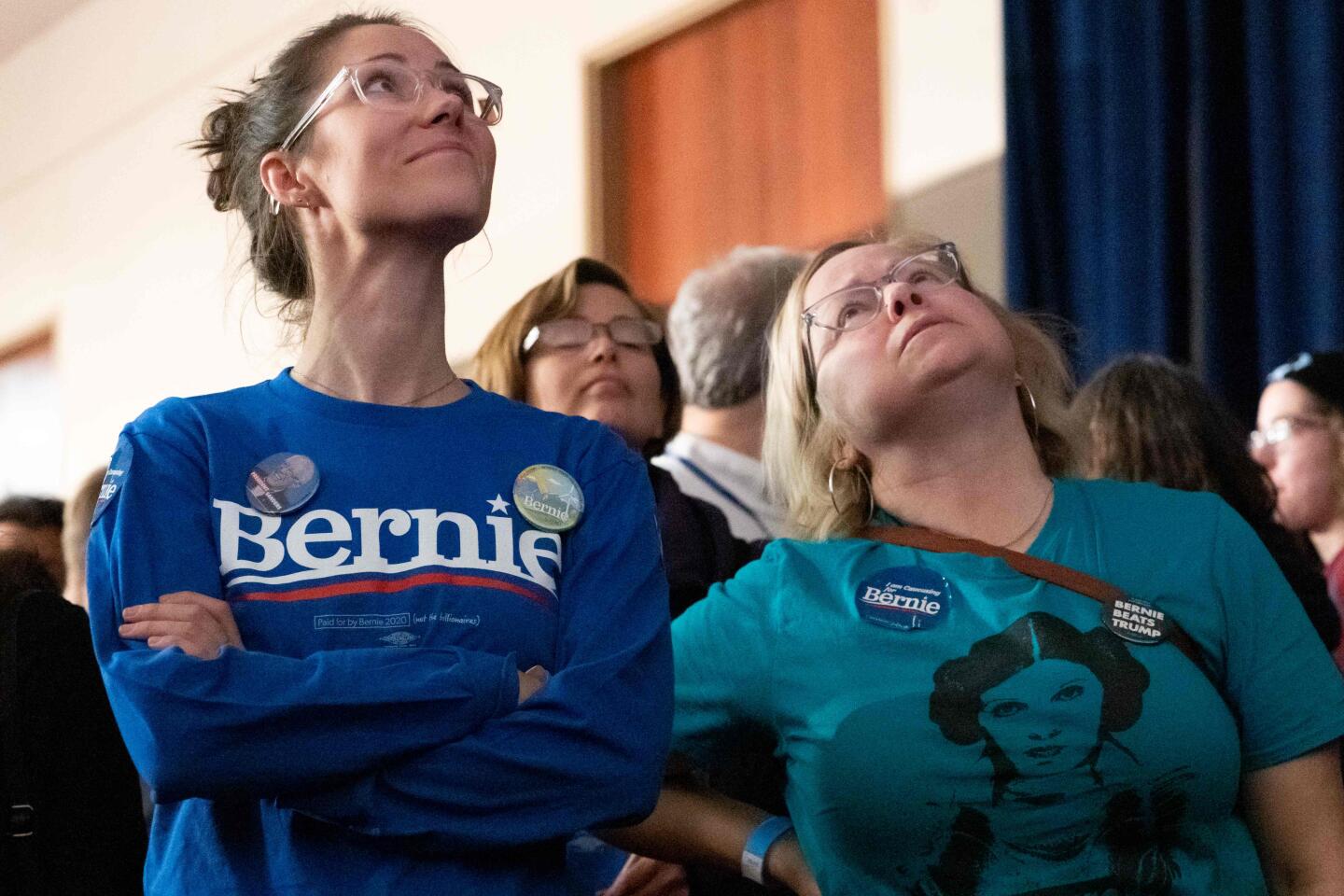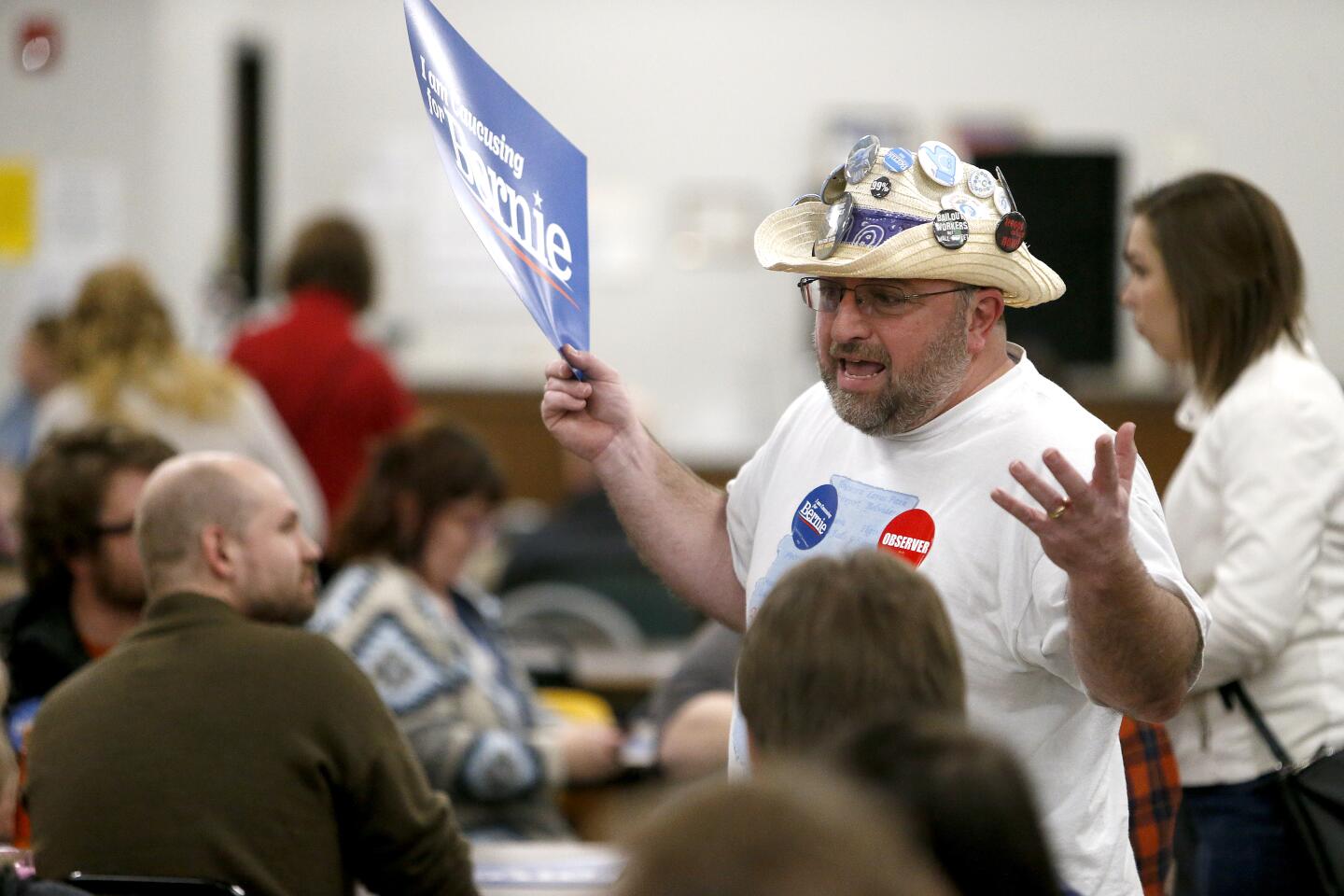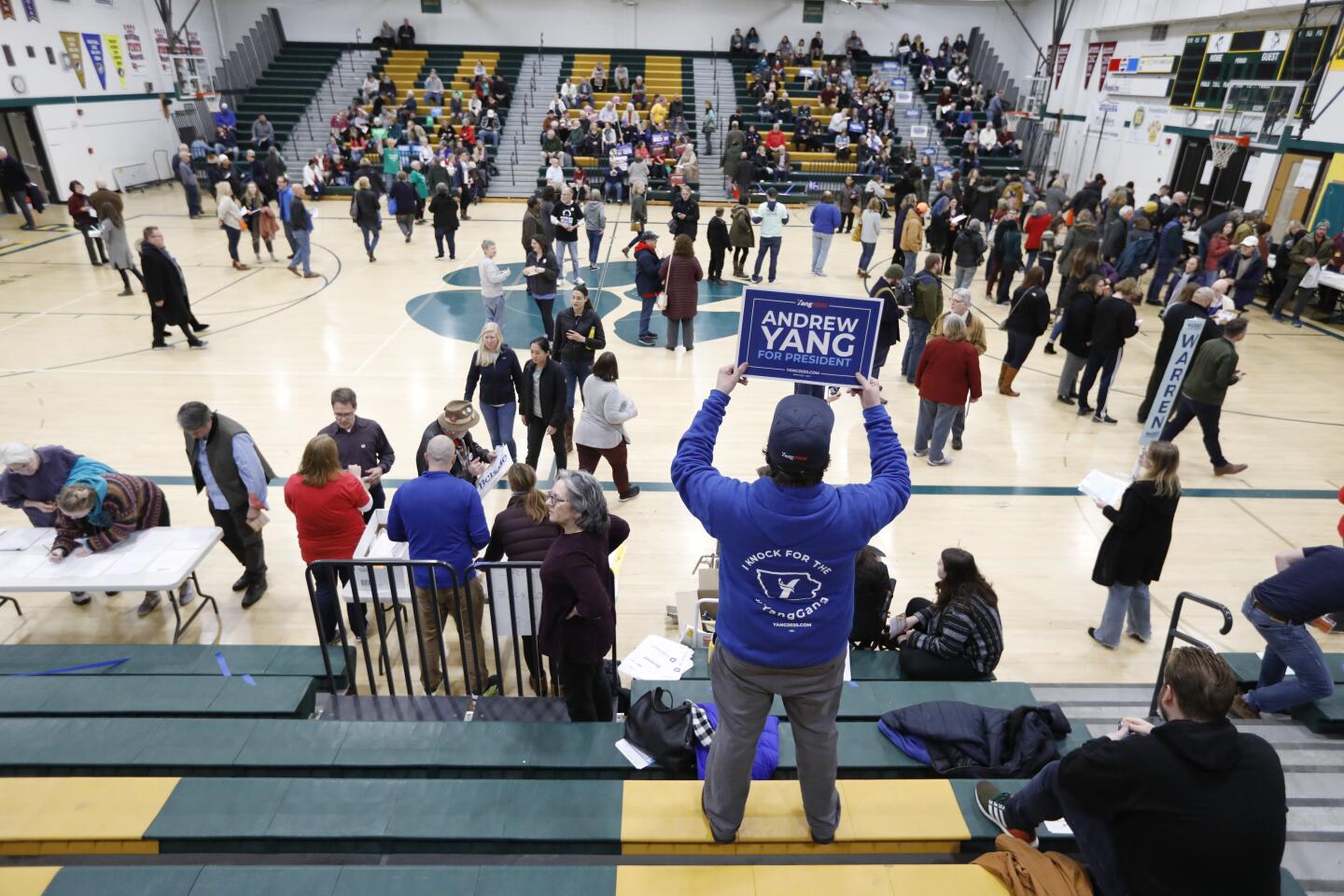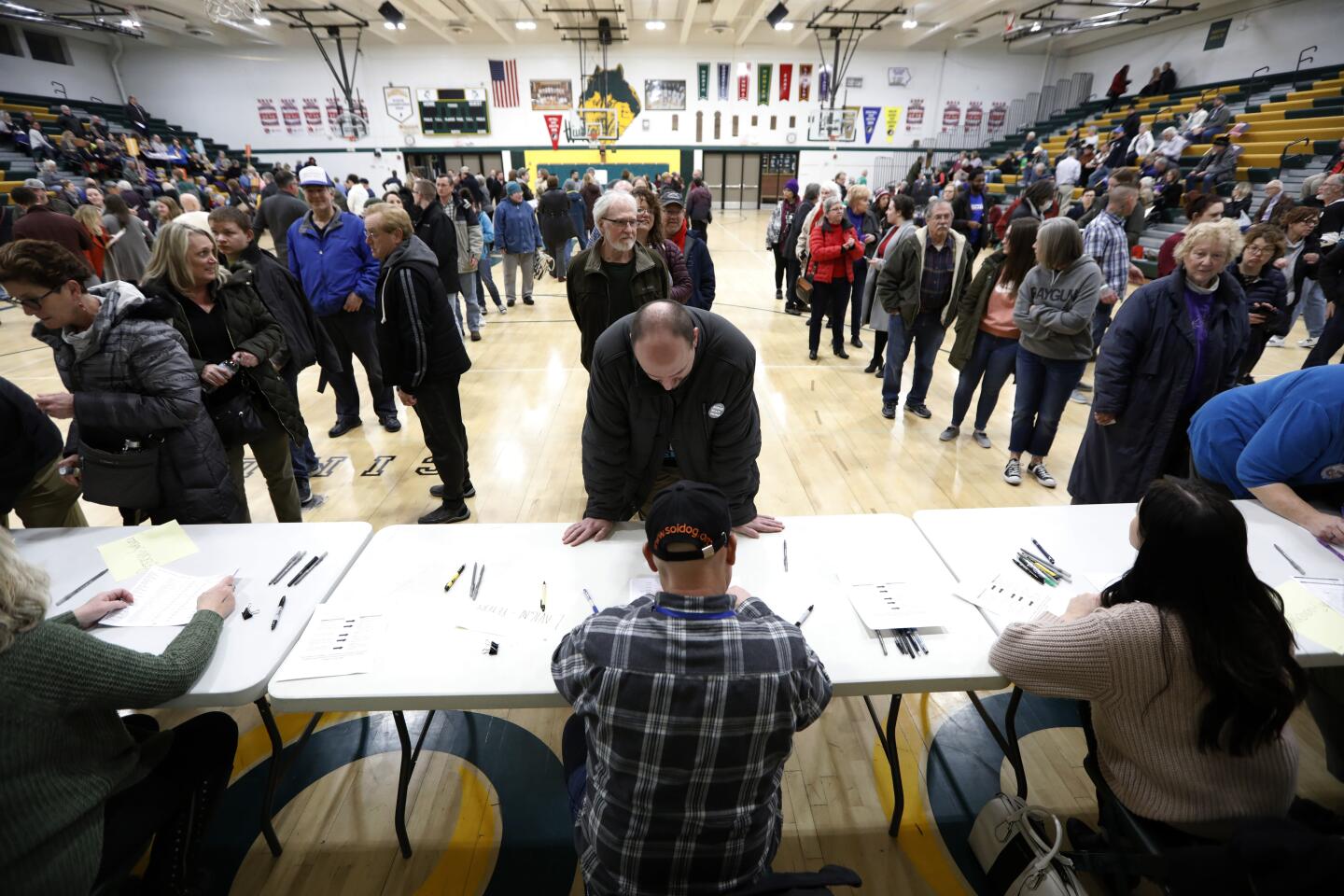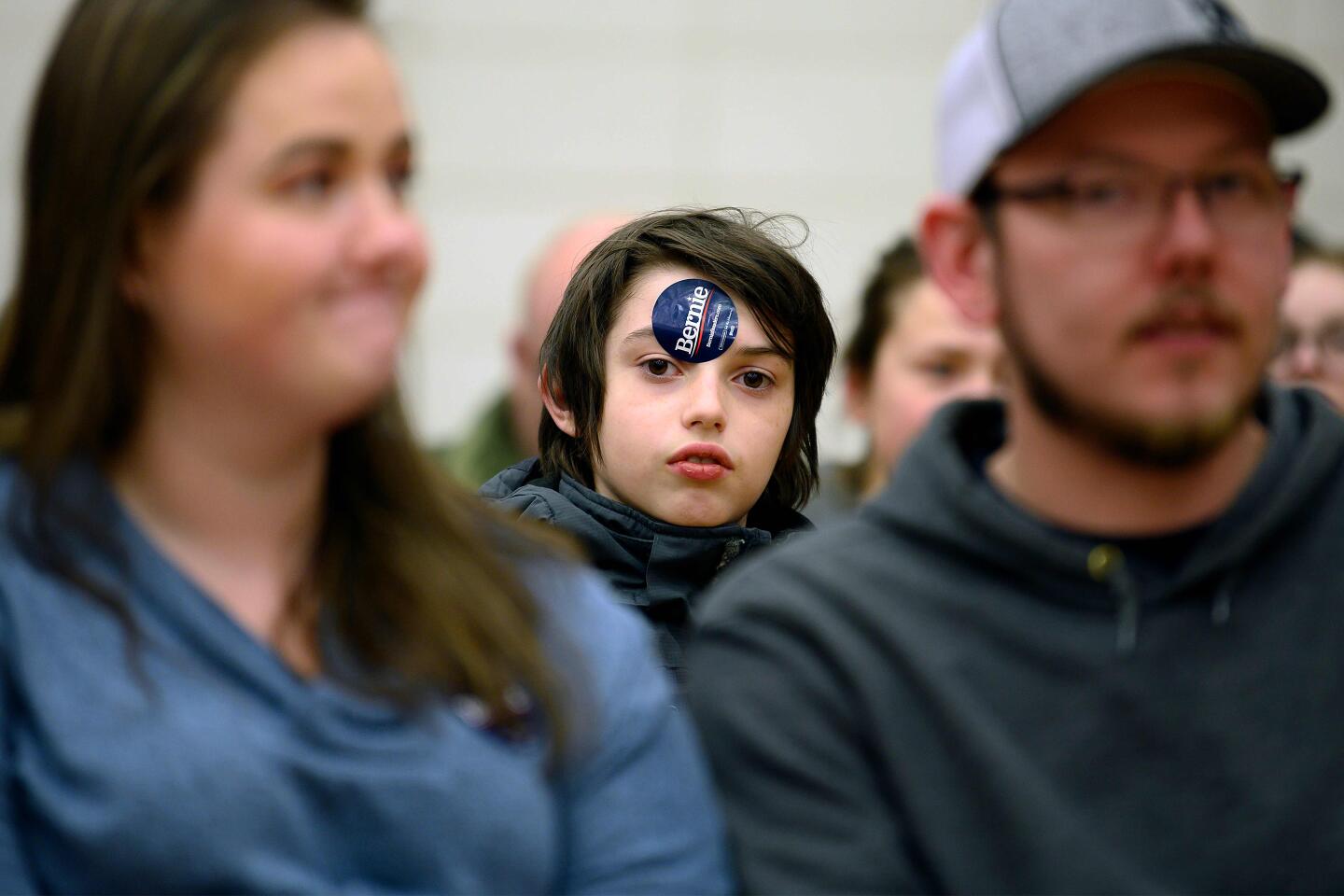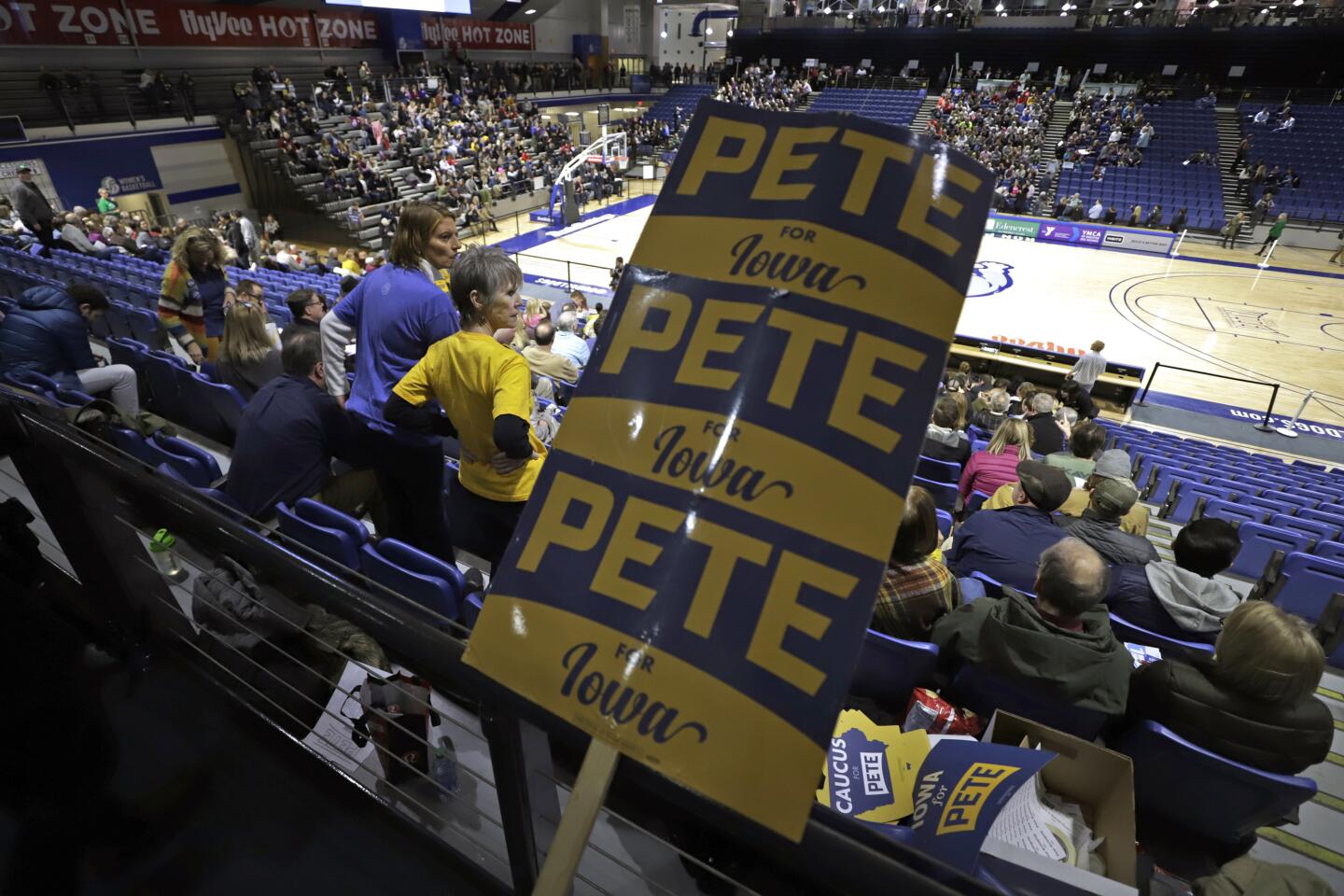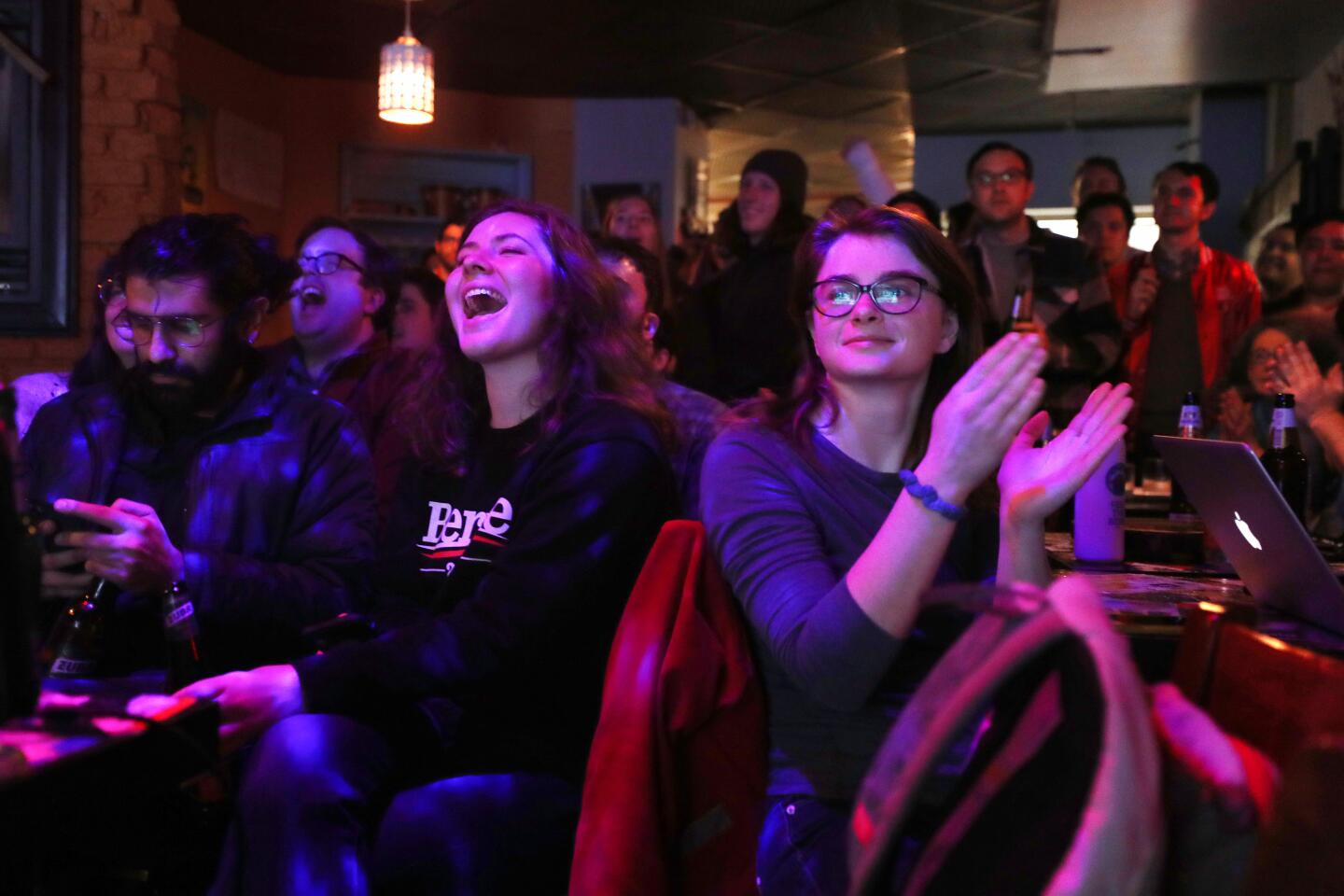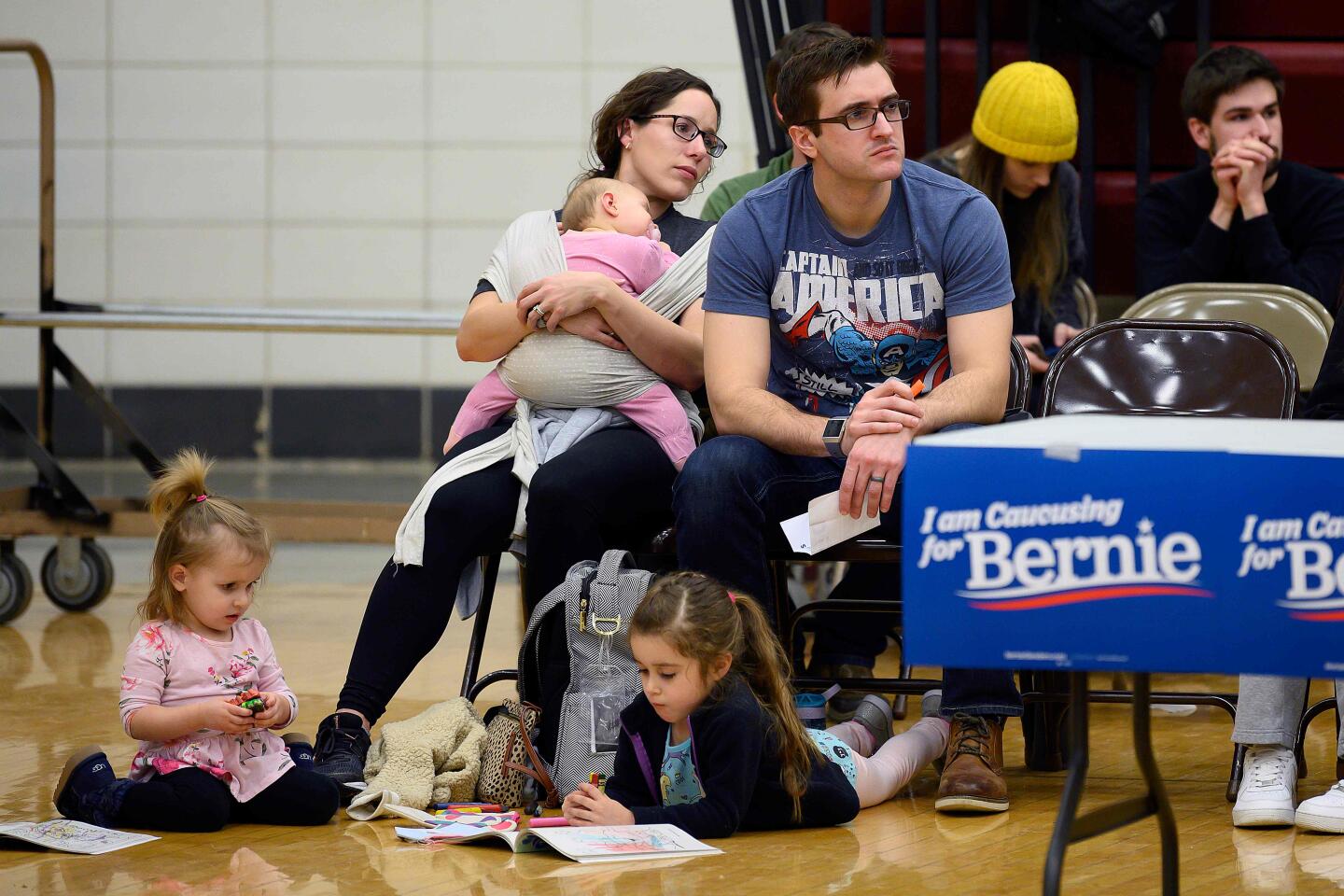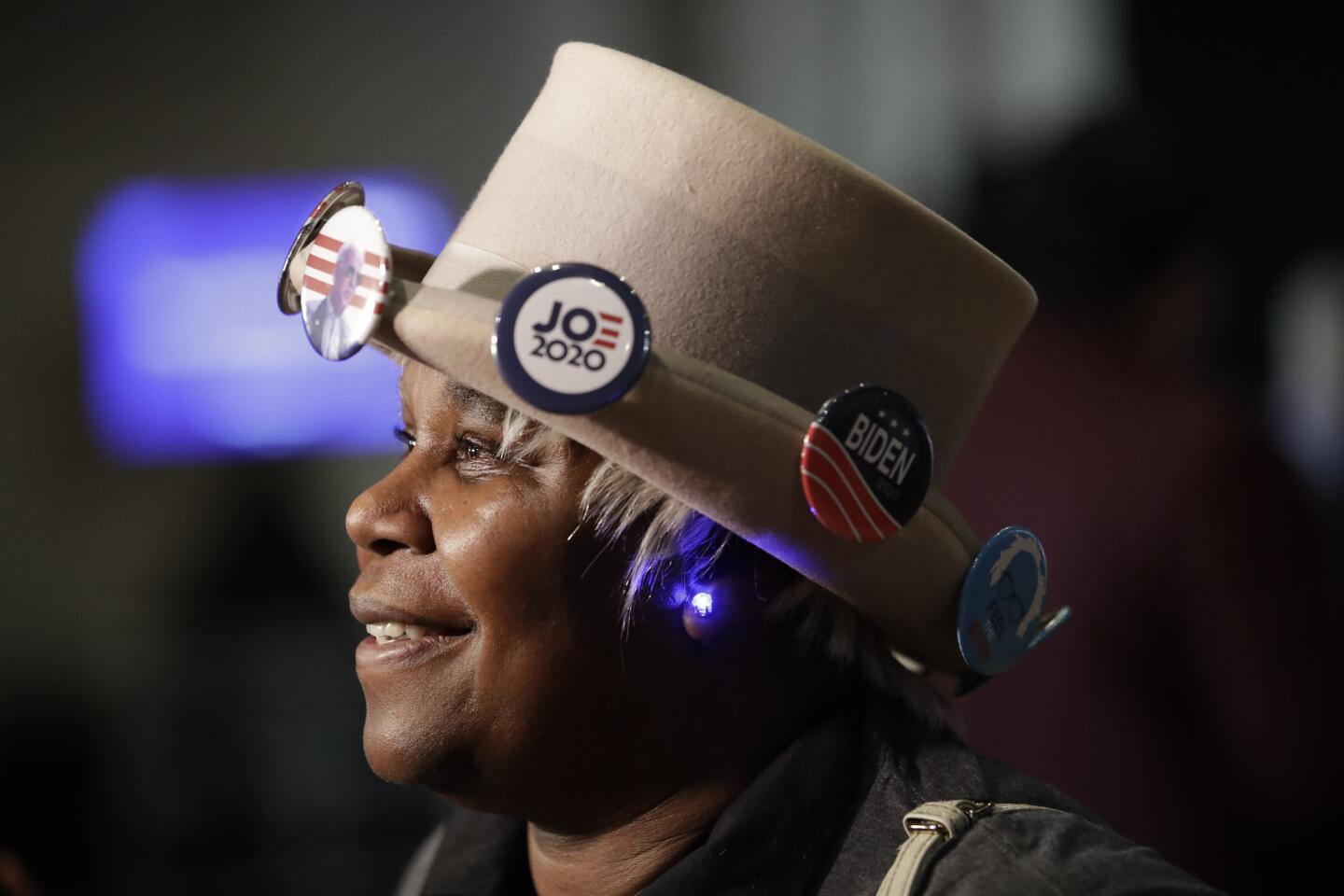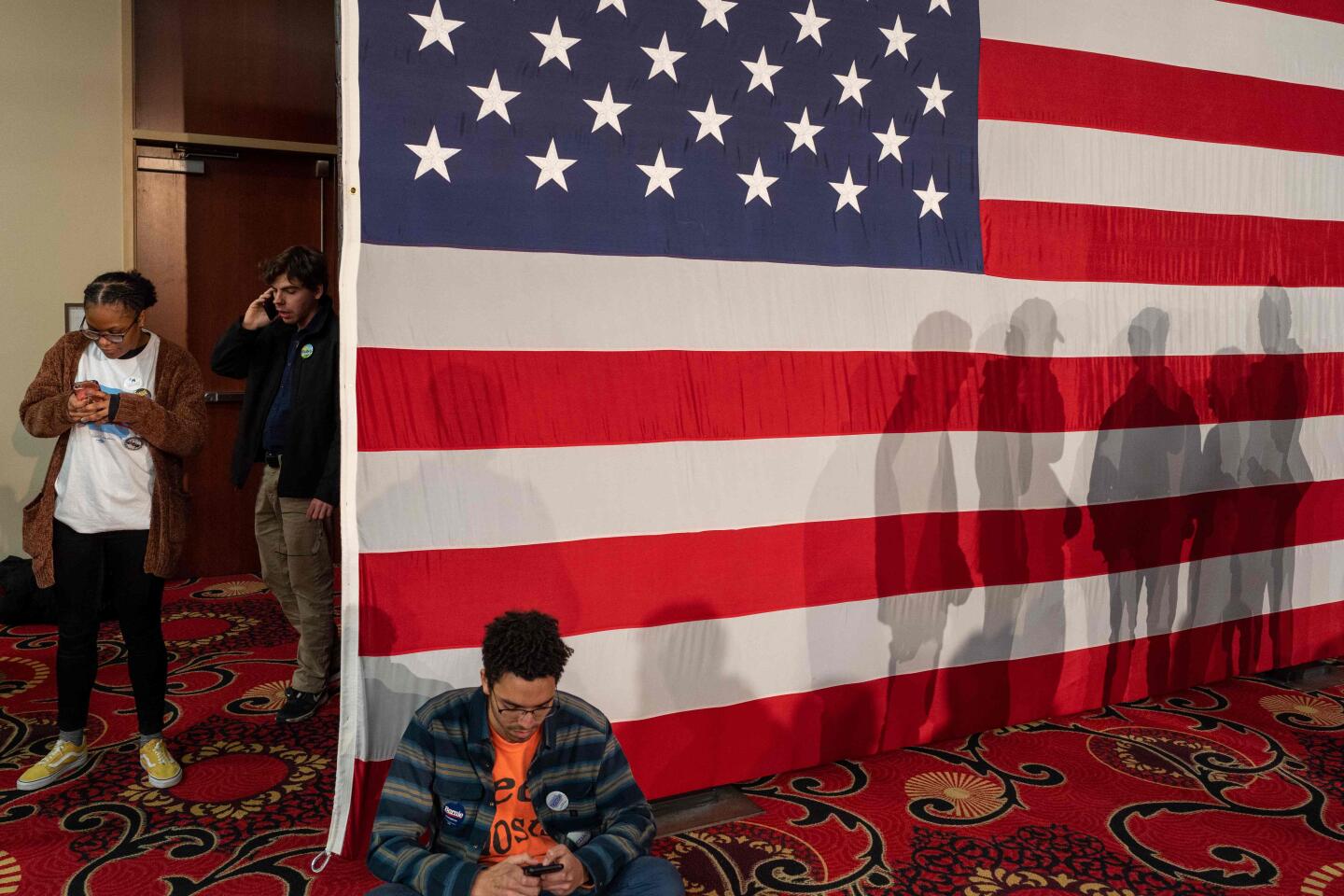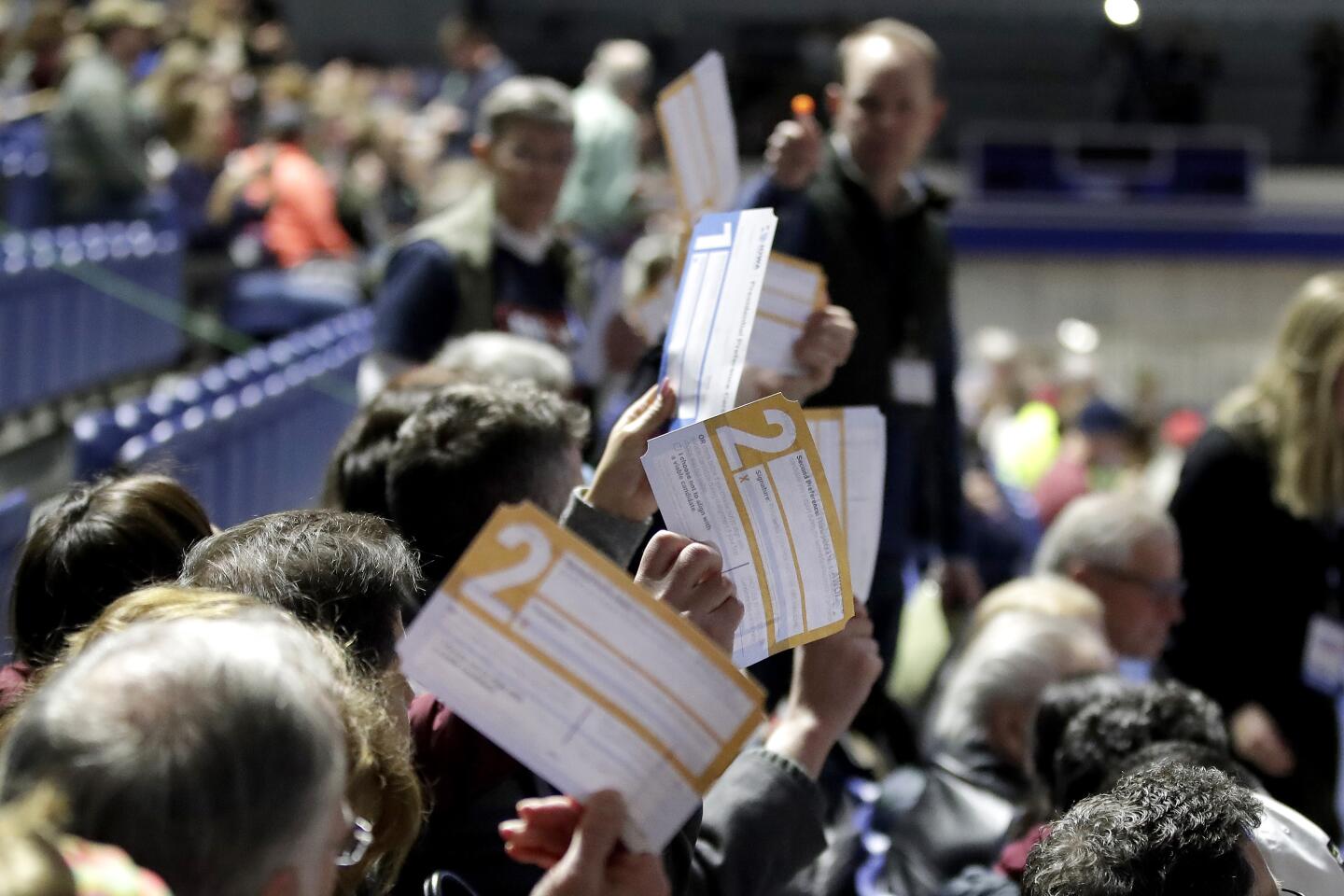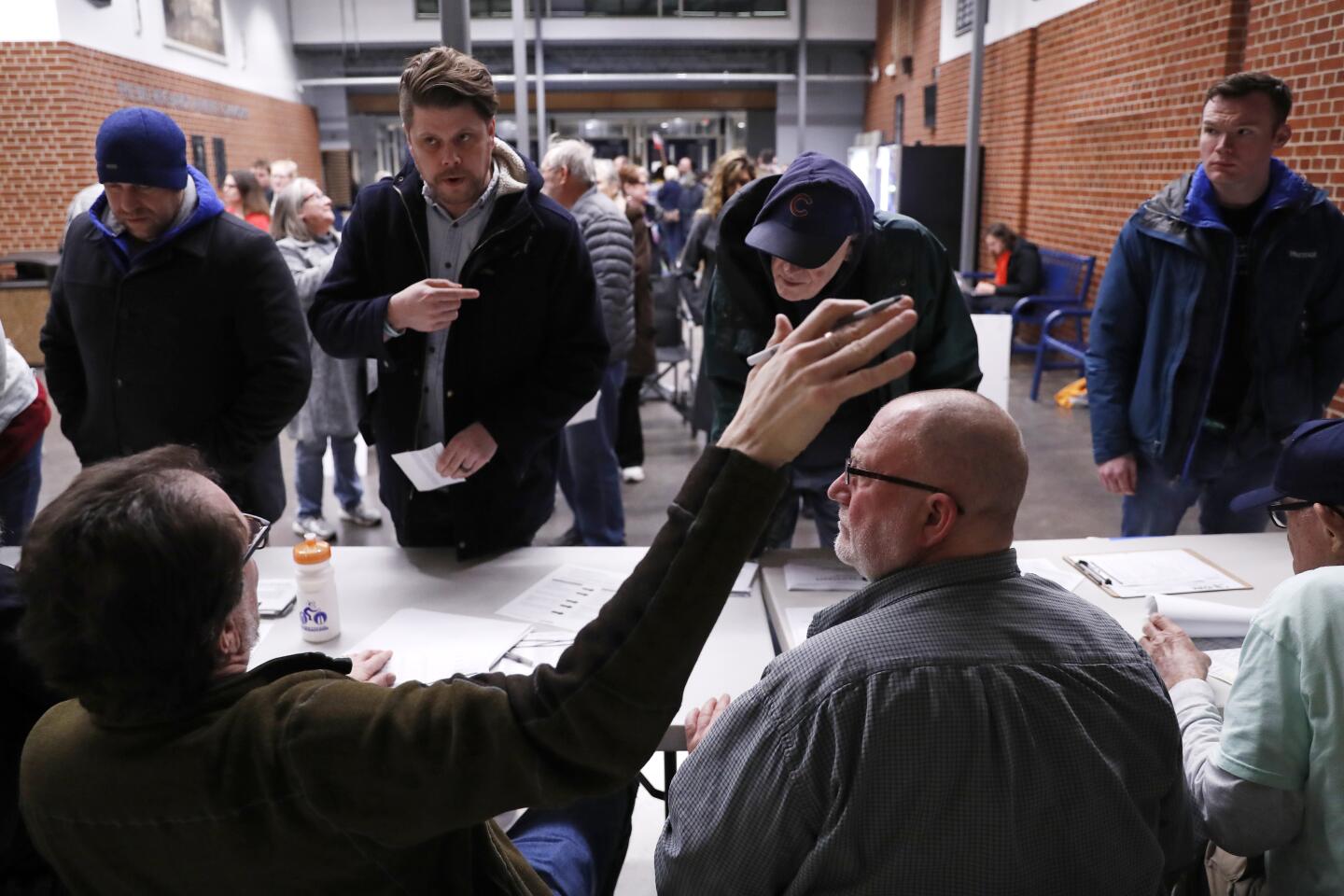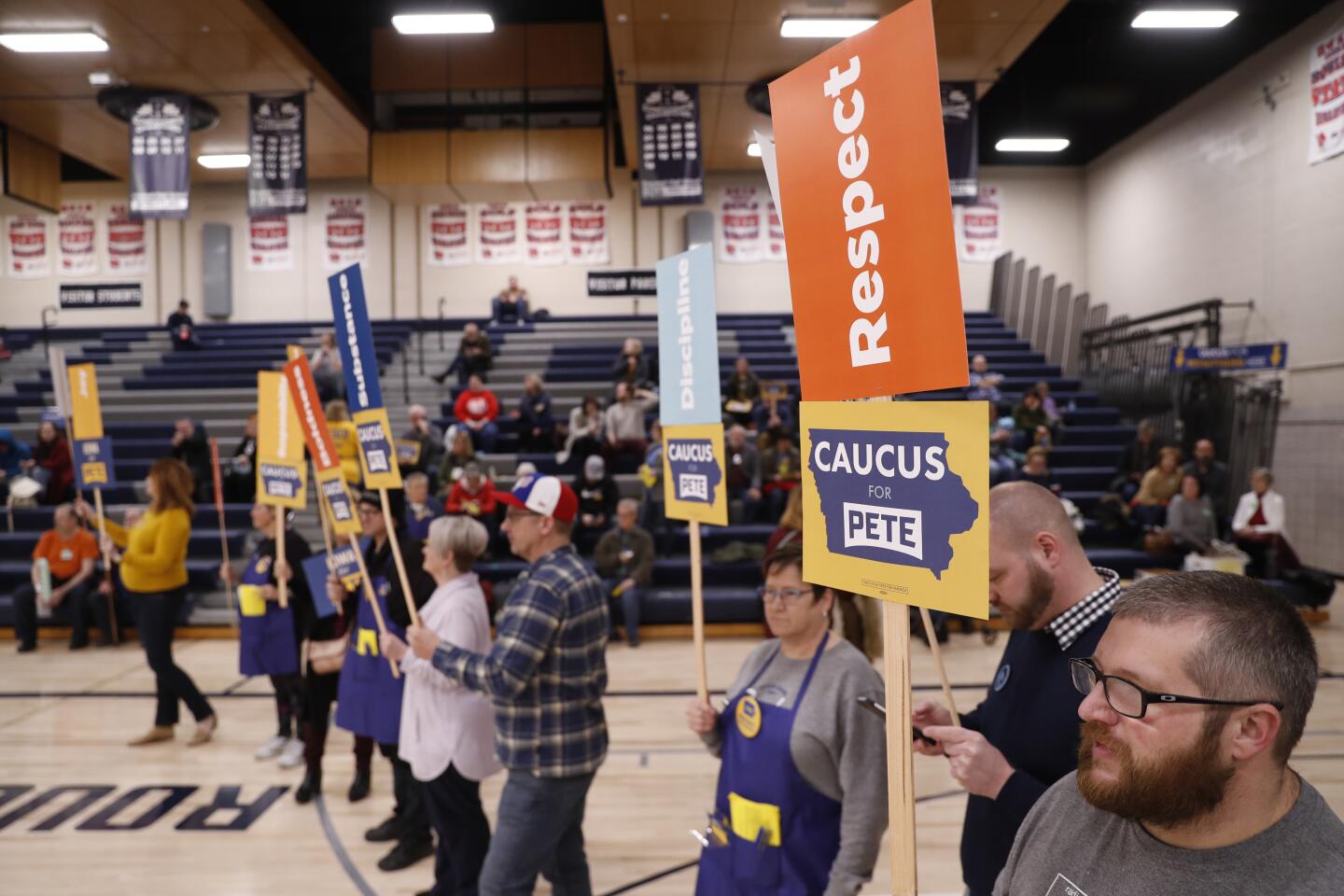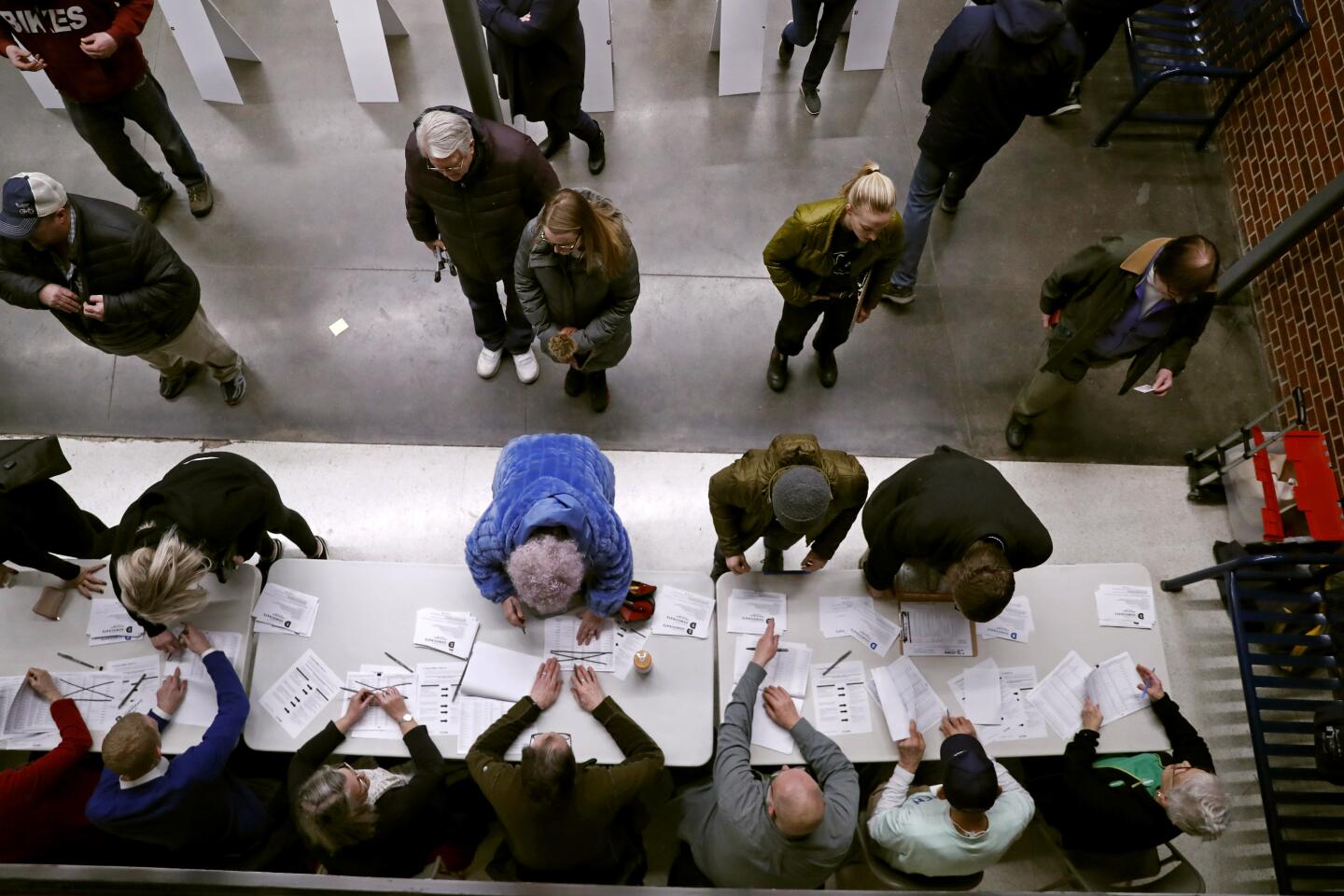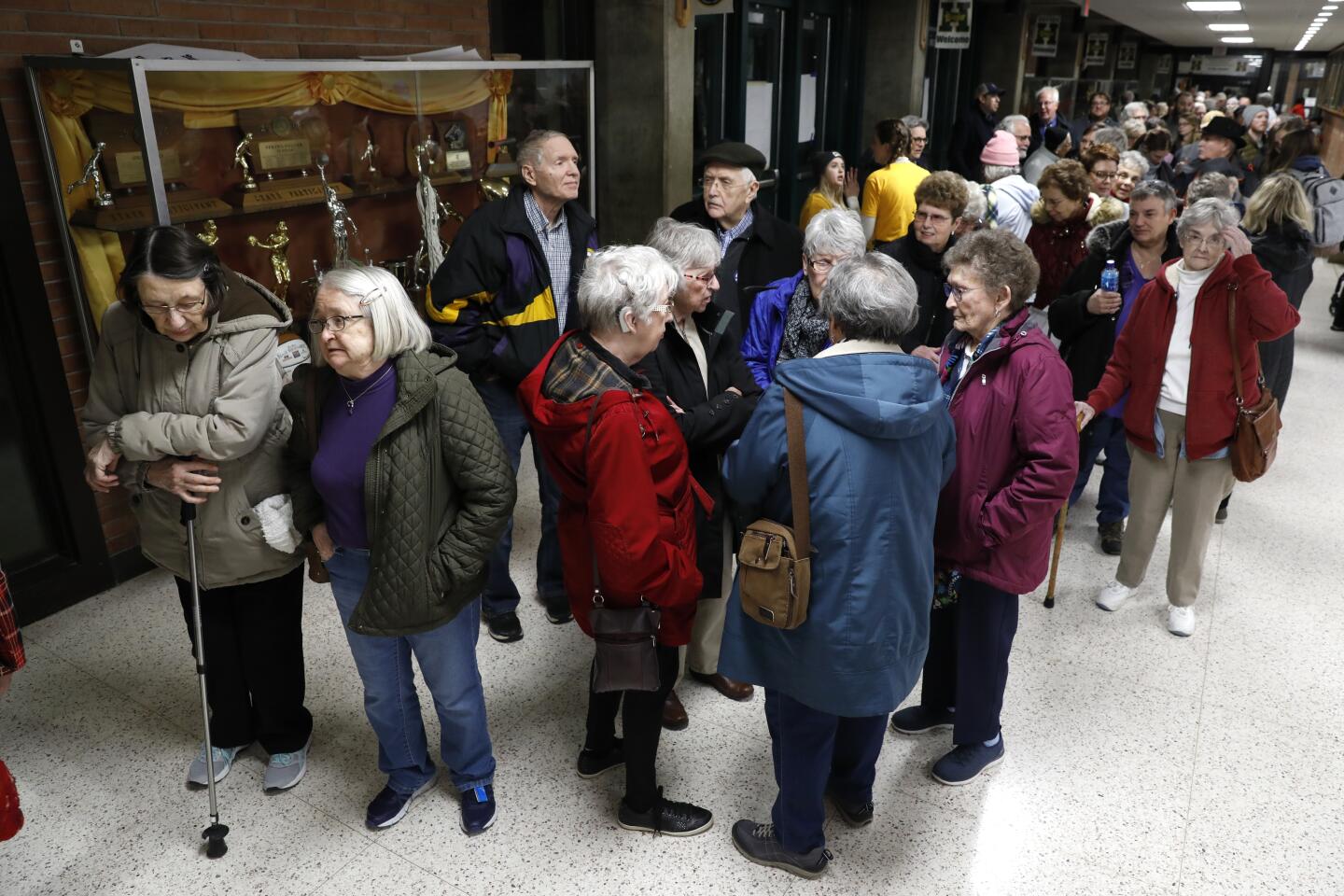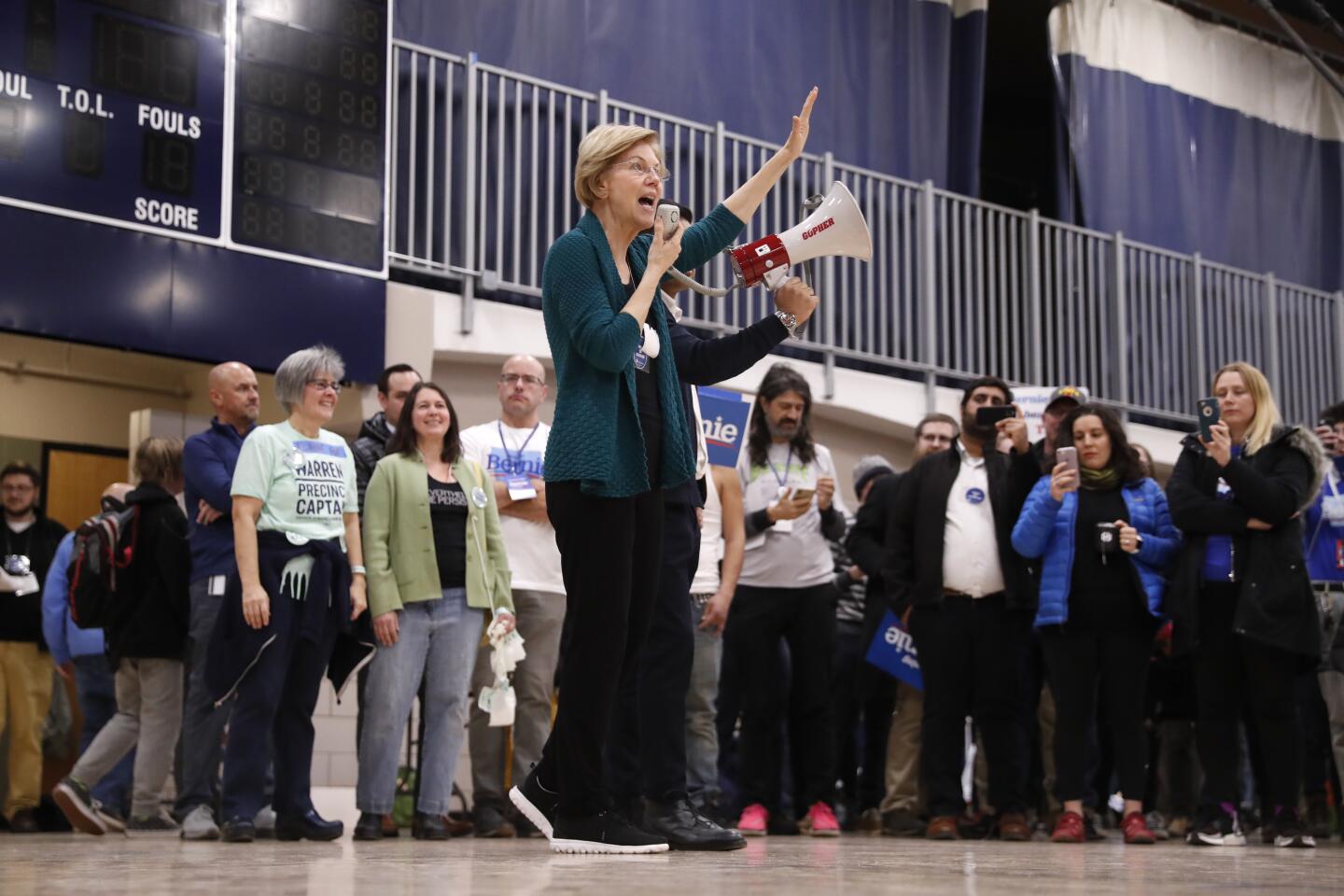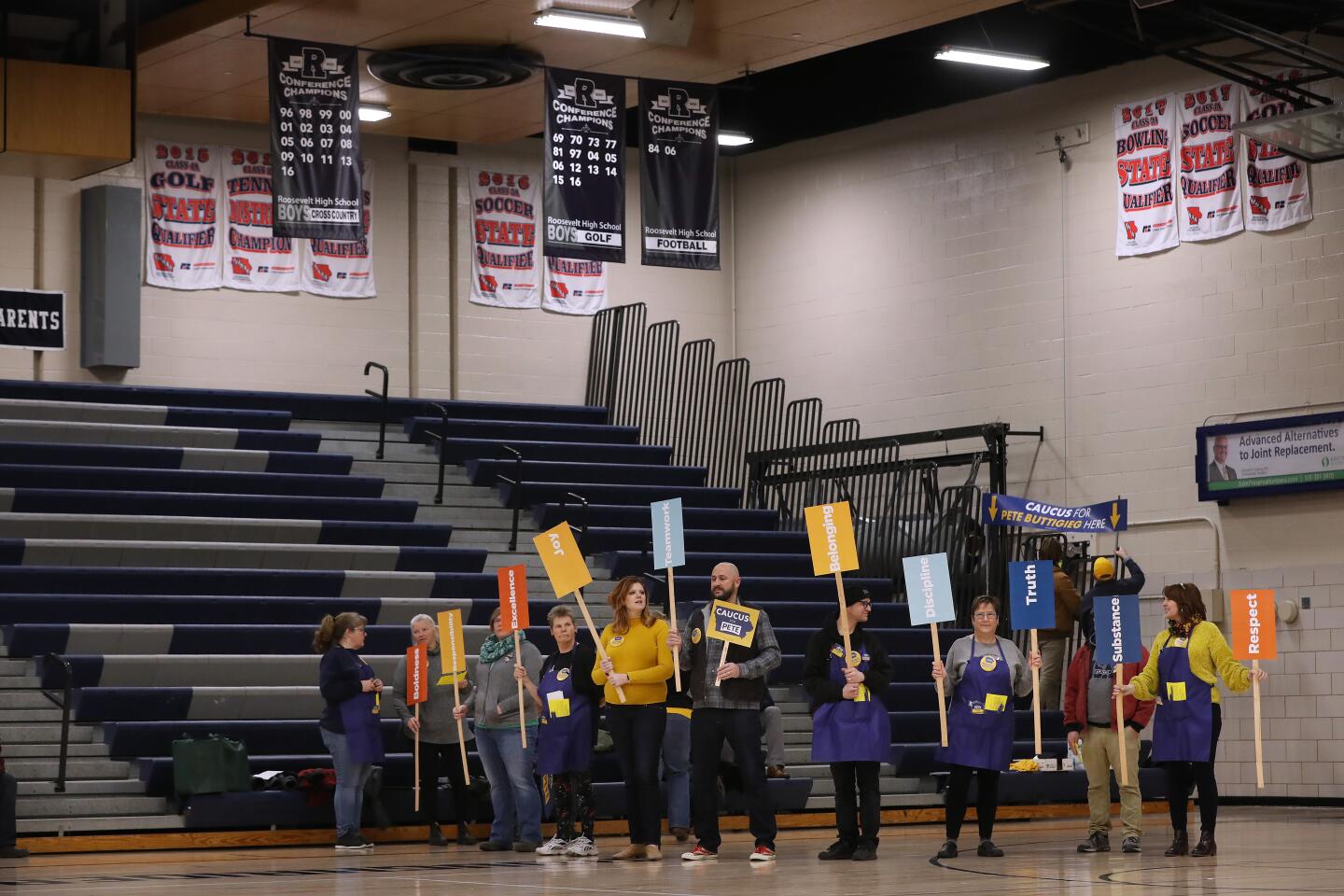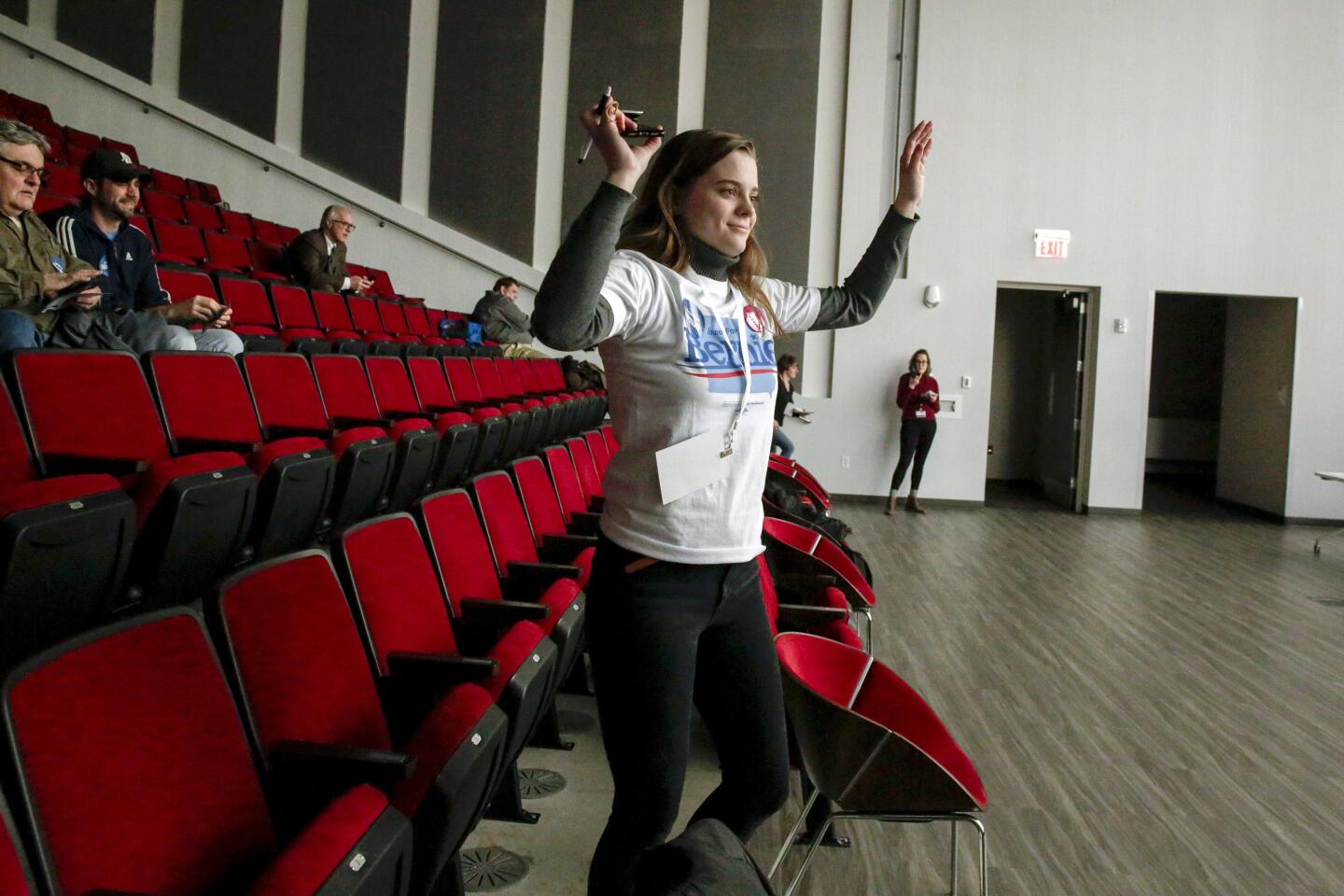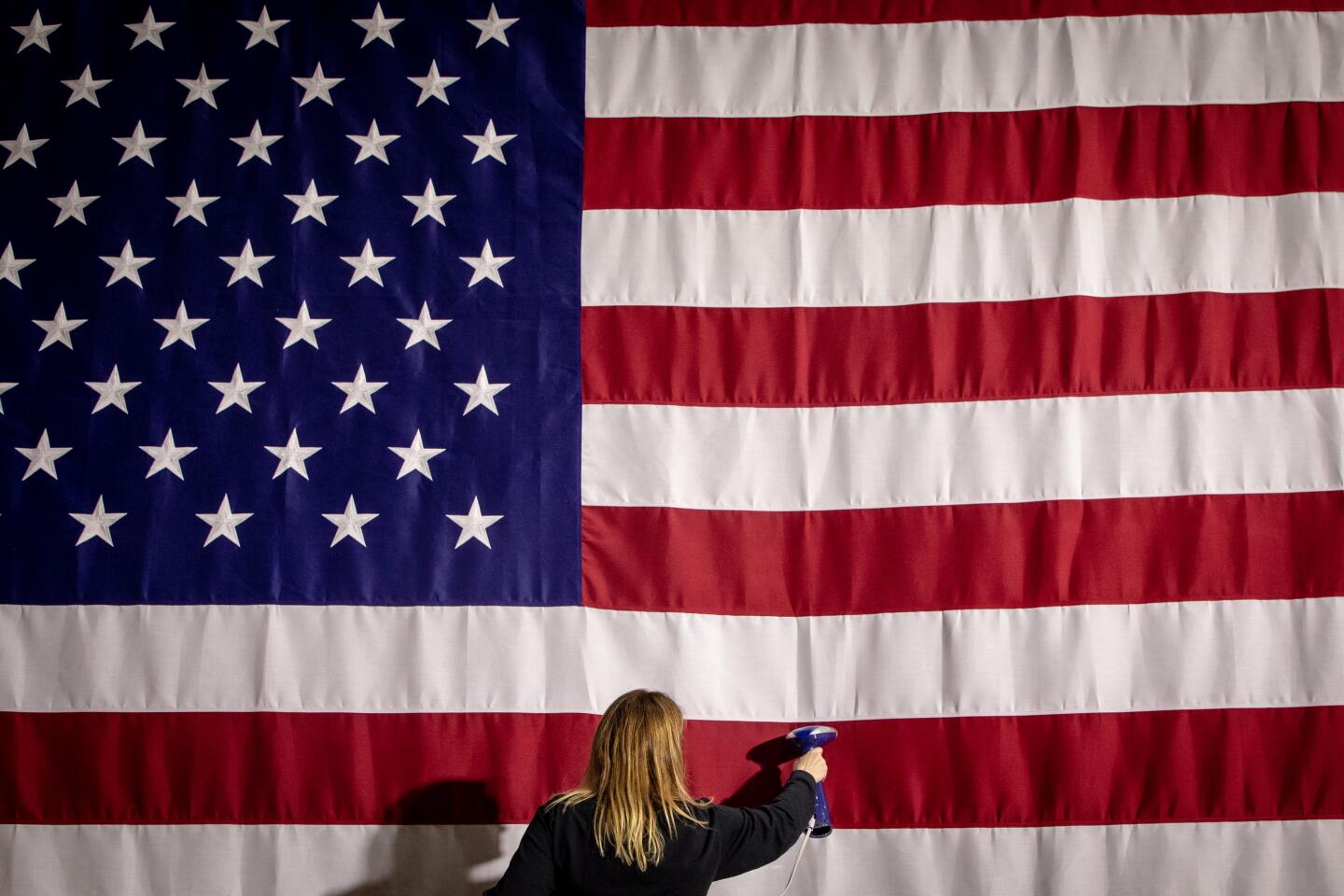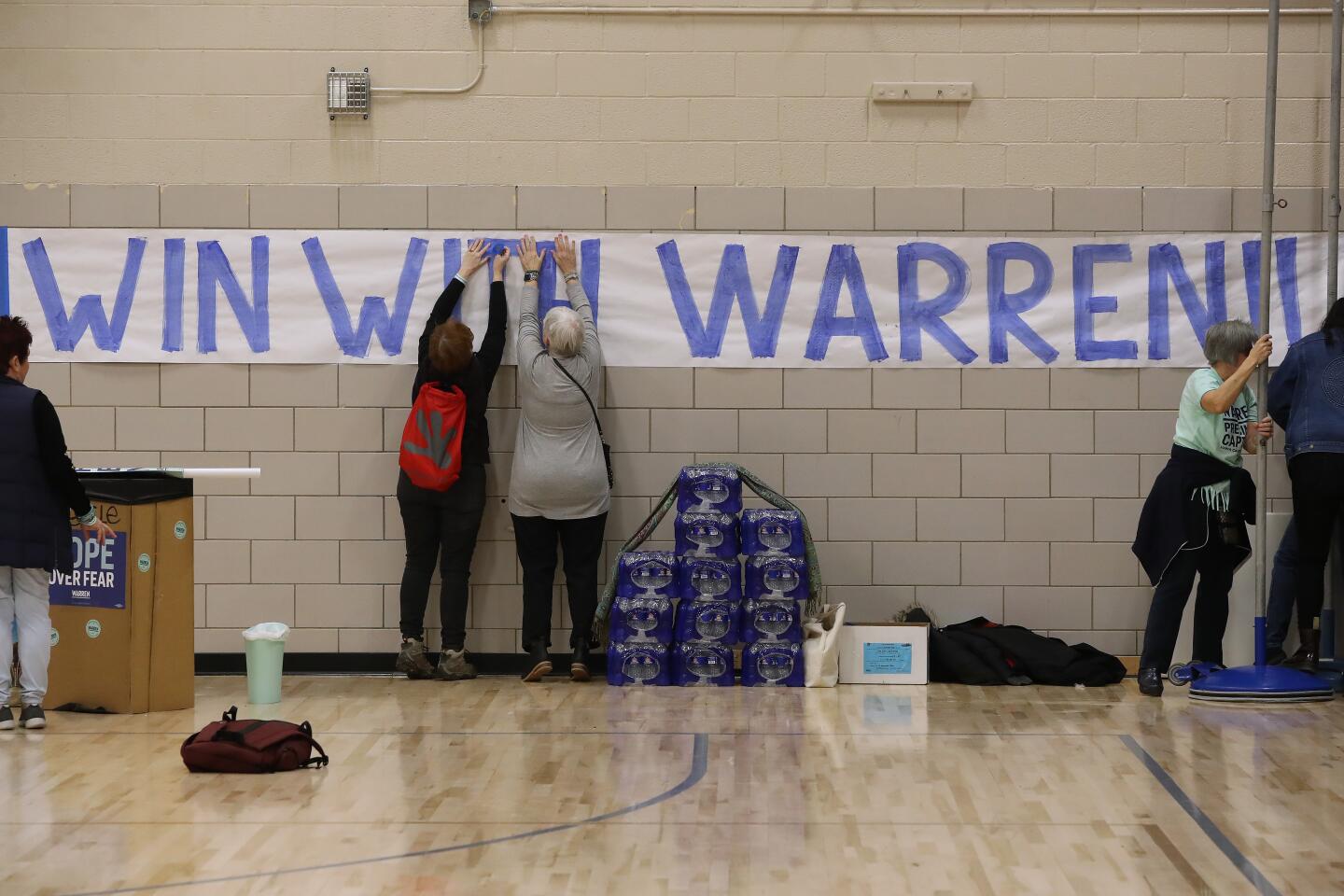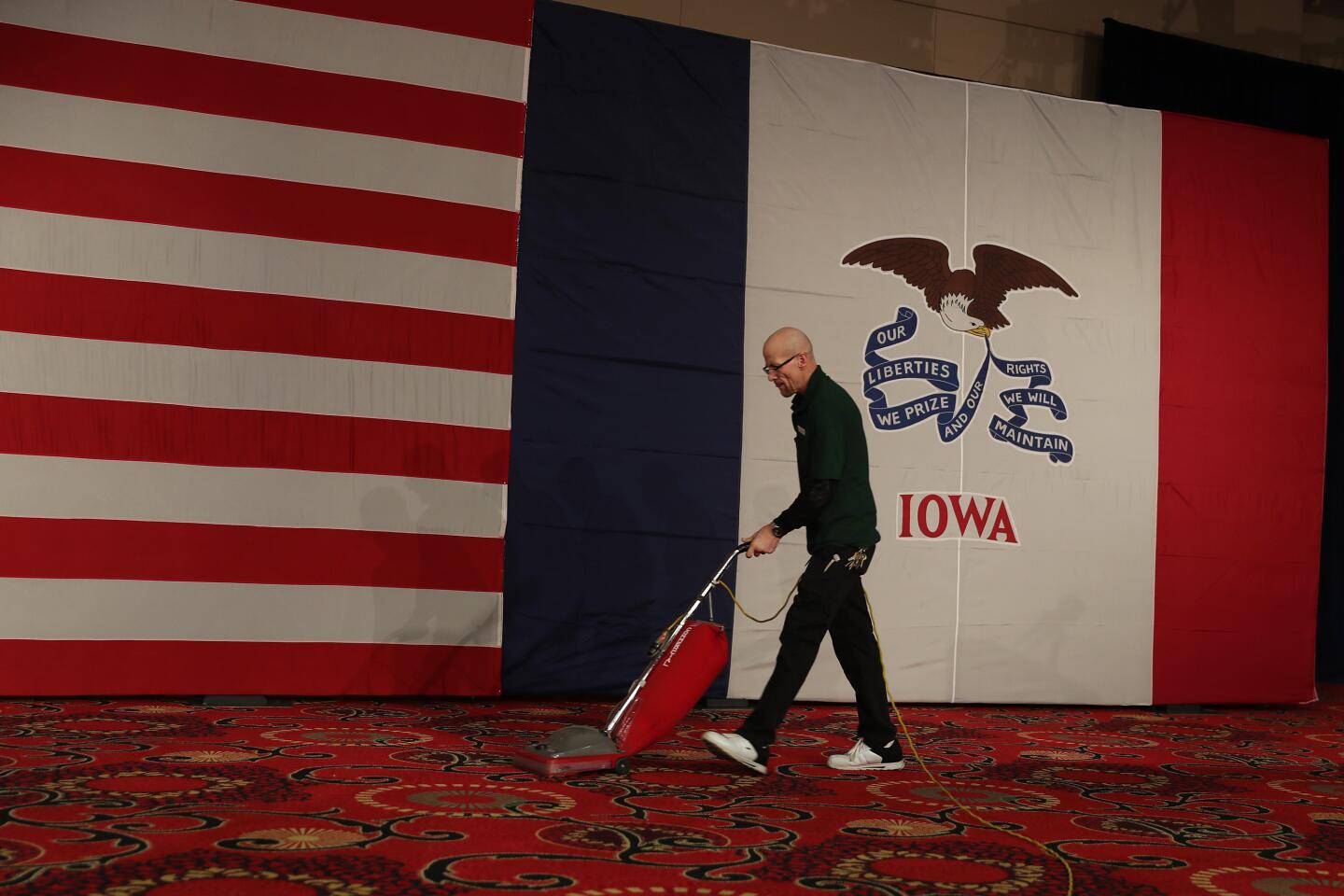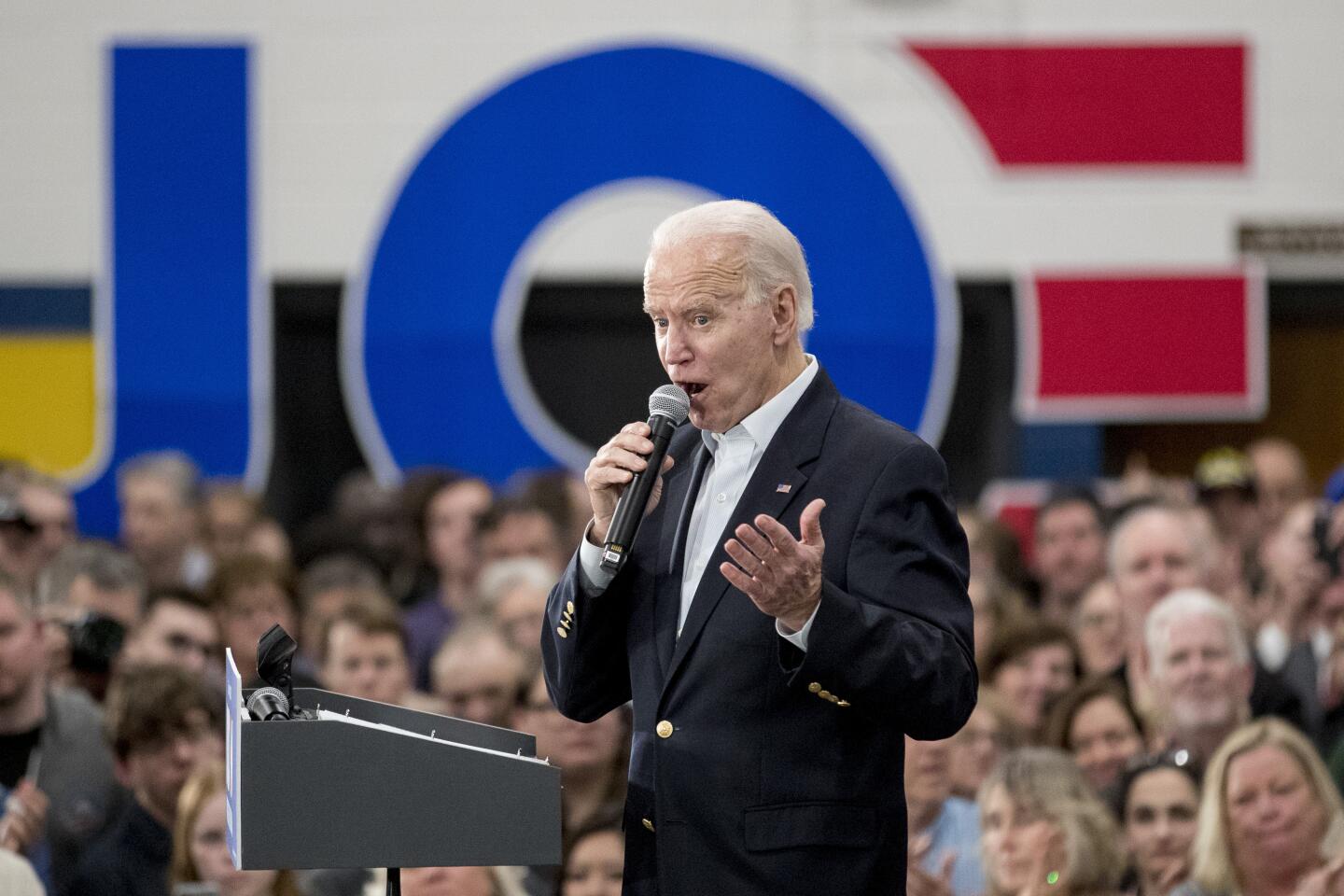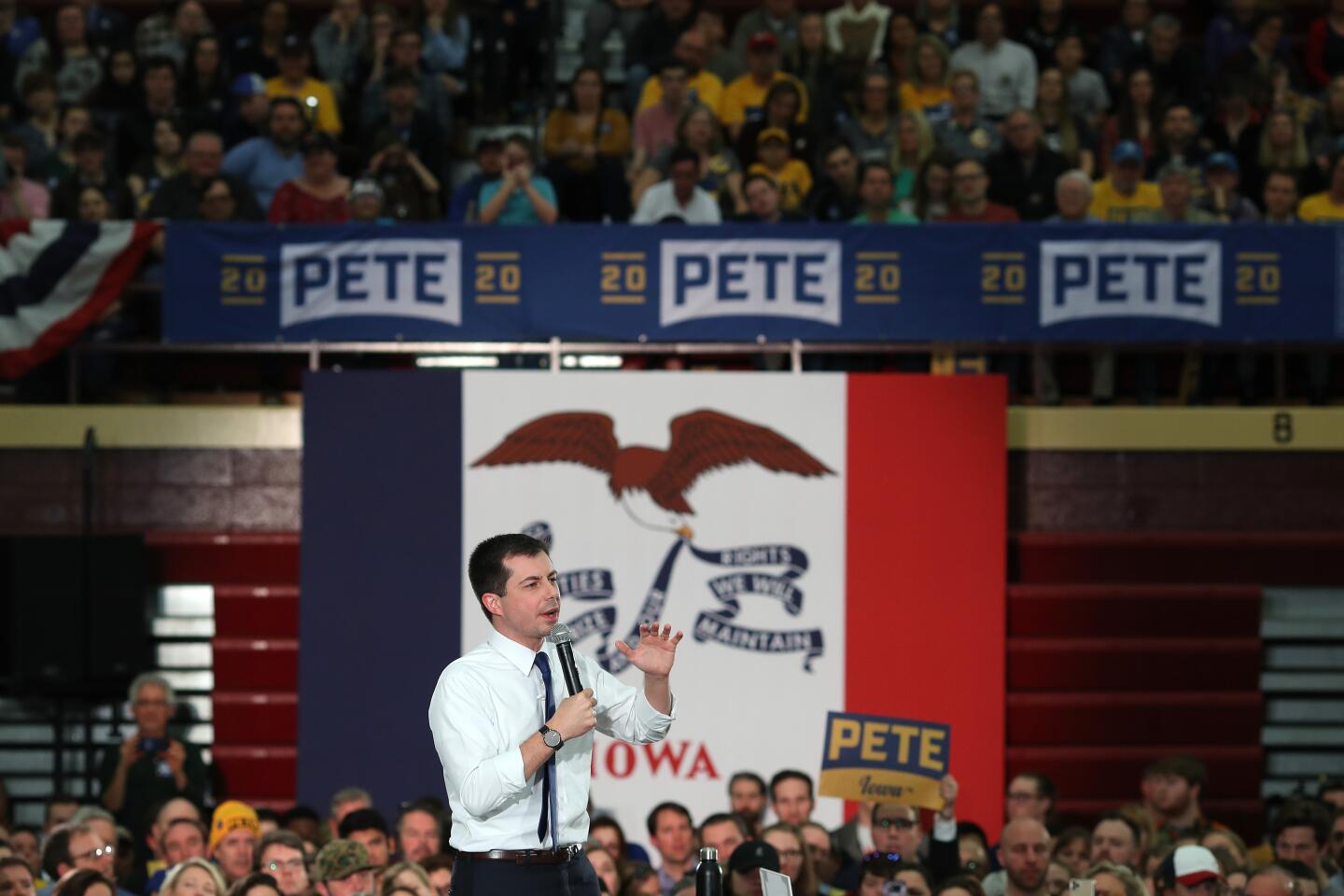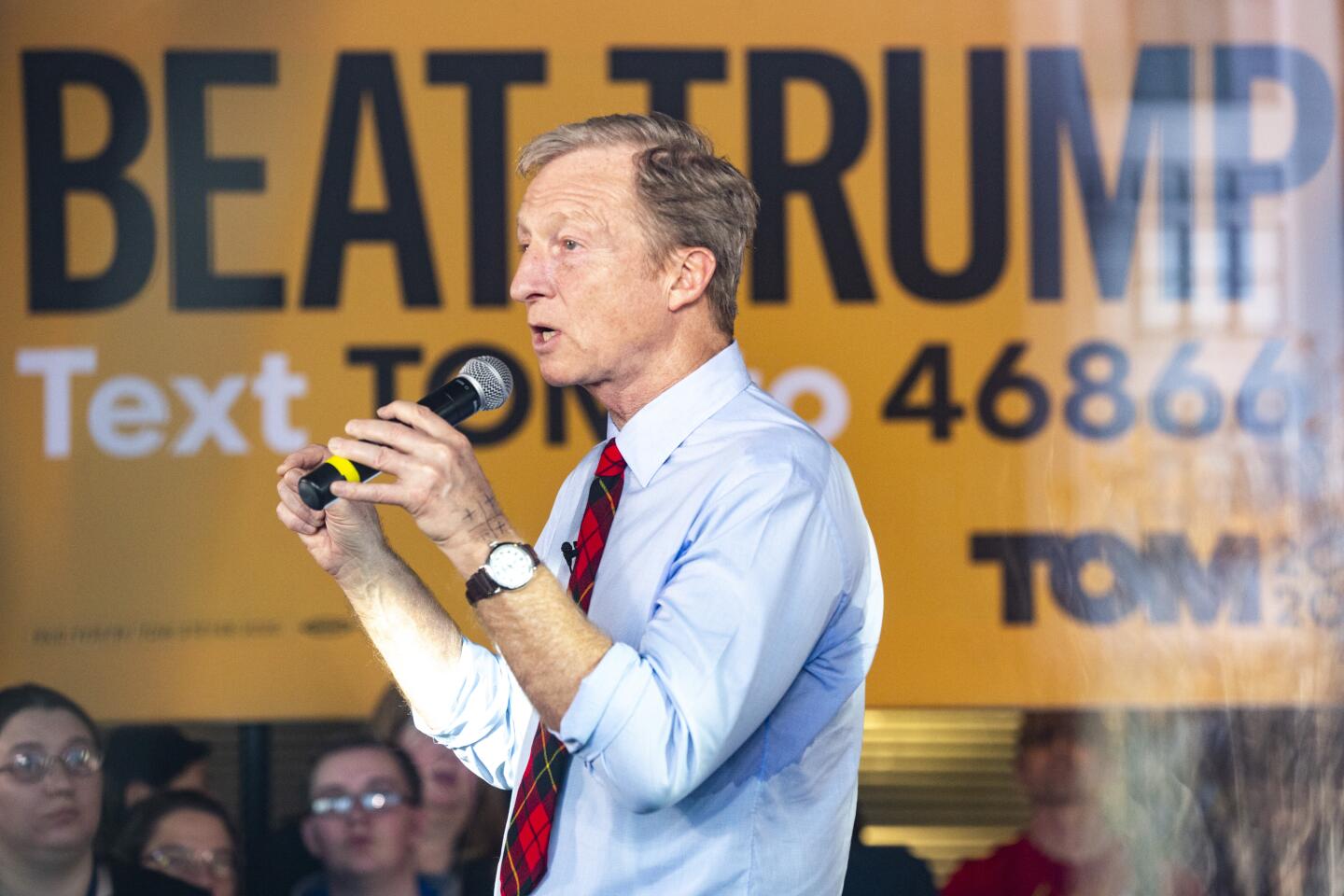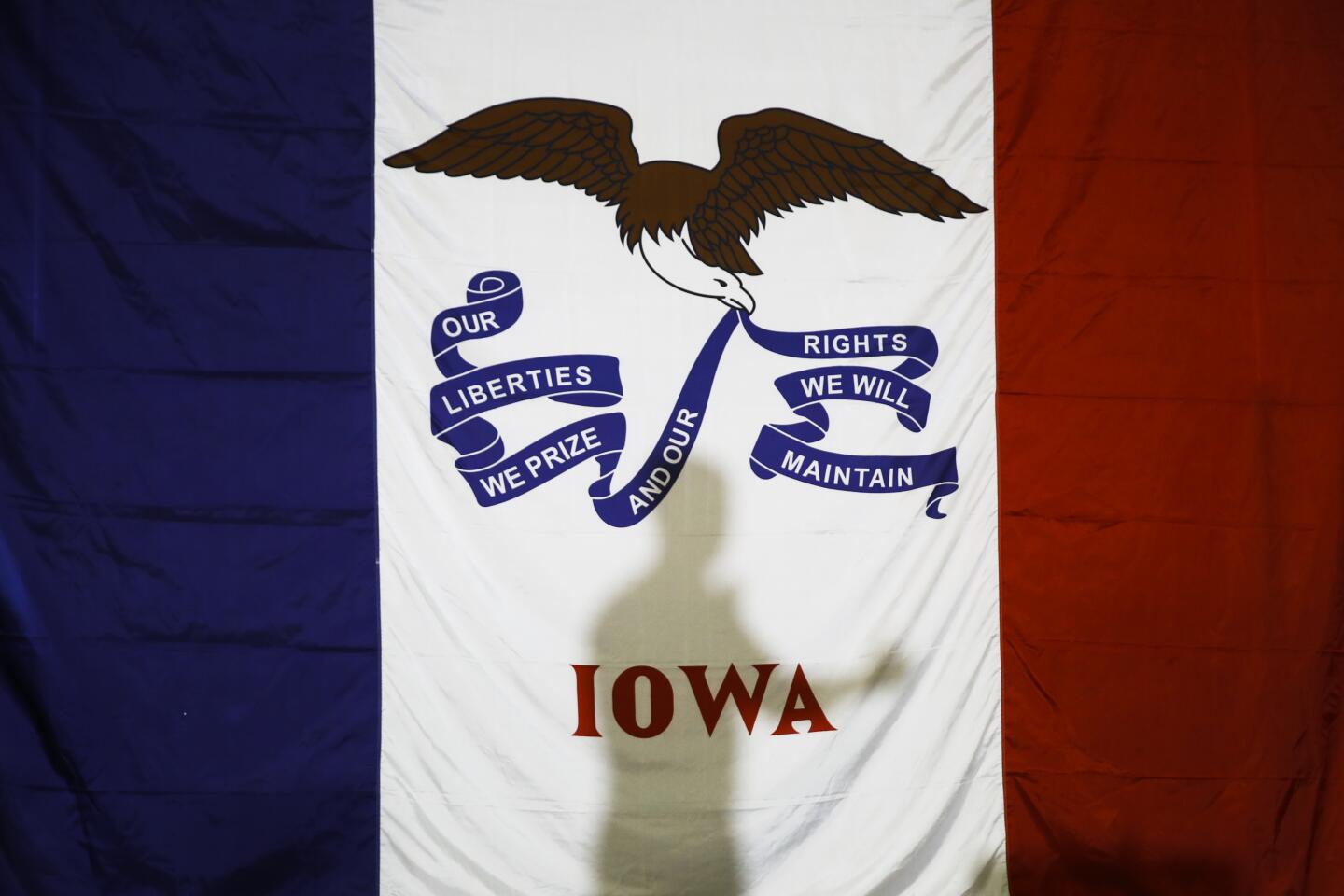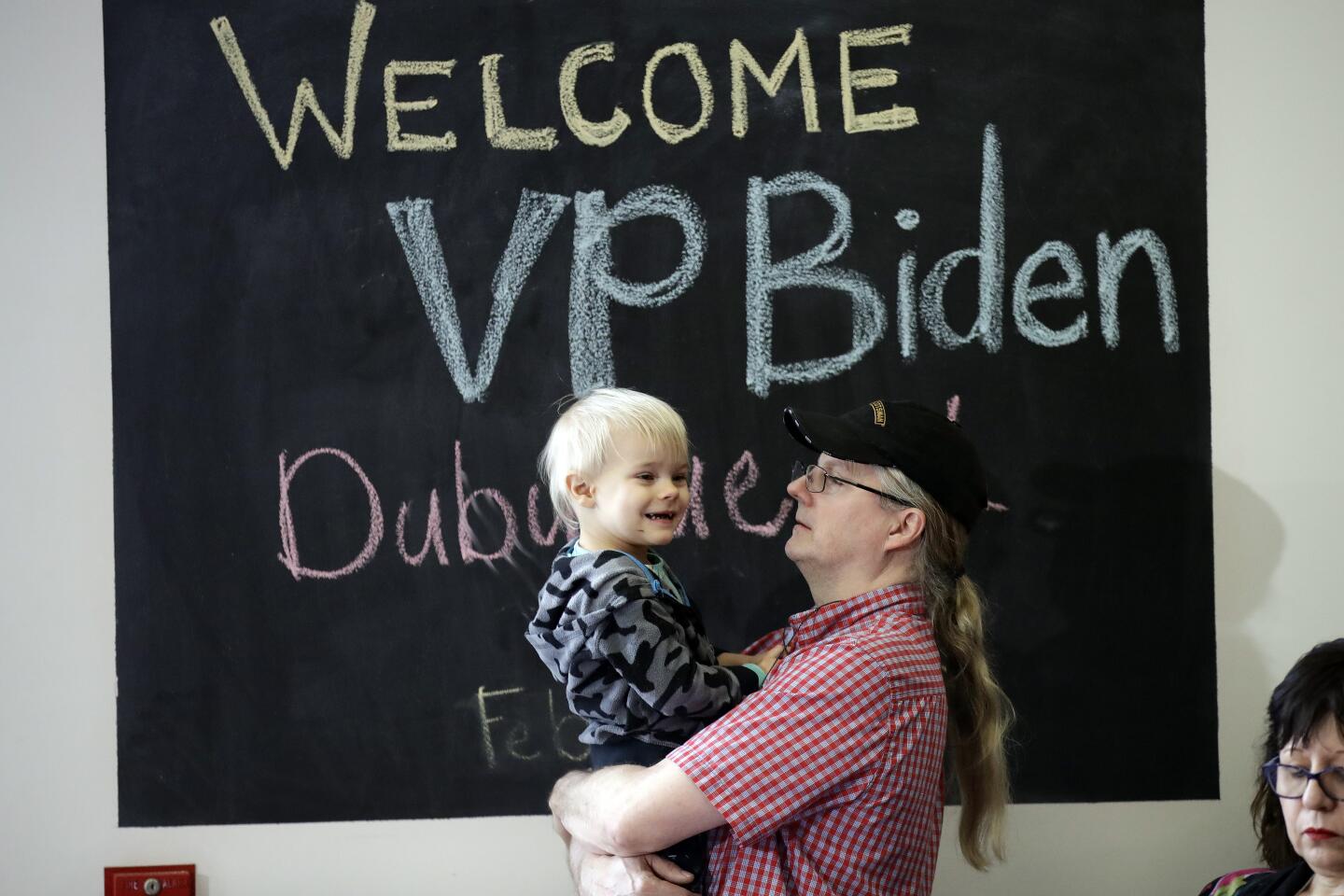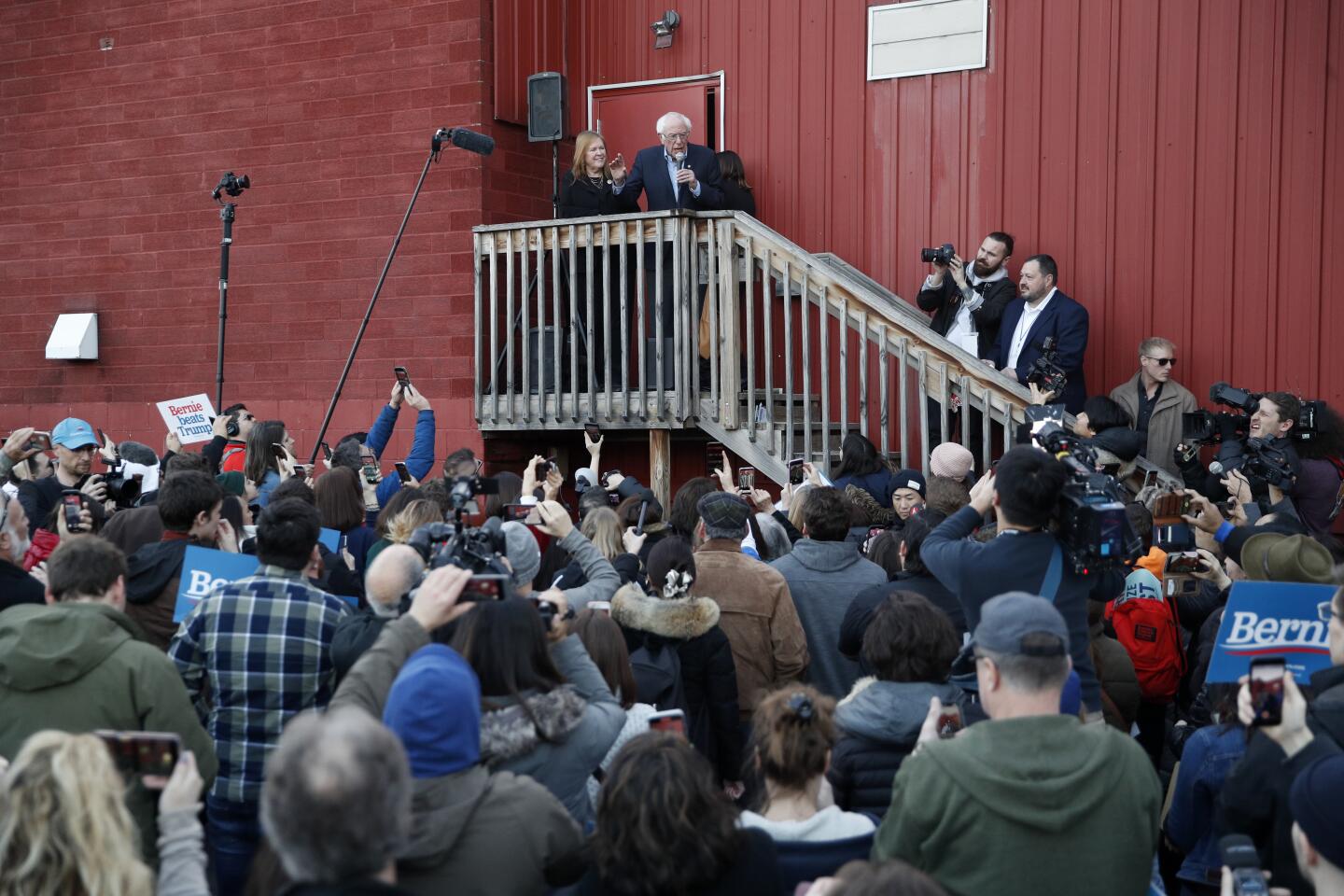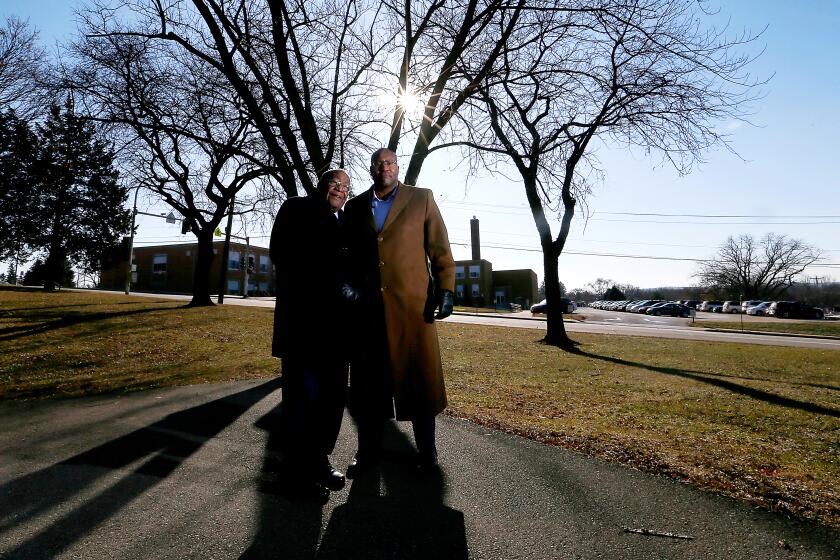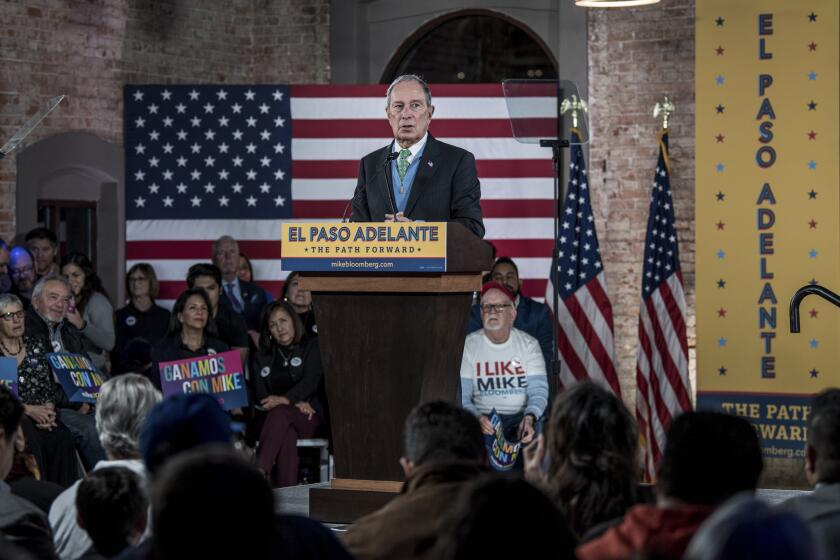Iowa Democratic caucuses turn to chaos as party fails to declare winner
- Share via
DES MOINES — The first electoral contest of the 2020 campaign turned into a major debacle Monday night as the Iowa Democratic Party failed to report the results of its influential presidential caucuses.
The nearly 1,700 community gatherings proceeded smoothly as eager partisans flocked to church basements, senior centers, school libraries and other warm places to make their preferences known.
The problems began when it came time to declare a winner, which will not come until Tuesday at the earliest.
Preliminary tallies showed the main competition was among former Vice President Joe Biden; ex-South Bend, Ind., Mayor Pete Buttigieg; Sens. Amy Klobuchar of Minnesota and Elizabeth Warren of Massachusetts, and the perceived front-runner, Sen. Bernie Sanders of Vermont.
A party spokeswoman explained the indefinite delay by citing “quality checks and the fact that the [Iowa Democratic Party] is reporting out three data sets for the first time.” The party said there was no sabotage involved.
“This is simply a reporting issue; the app did not go down and this is not a hack or an intrusion,” said communications director Mandy McClure. “The underlying data and paper trail is sound and [it] will simply take time to further report the results.”
But Democratic leaders and precinct chairs around the state reported problems with the computer application intended to relay results to the party headquarters in Des Moines.
“I briefly tried to log in. It didn’t want me to log in. I could put the precinct number in there, but then it wouldn’t let me do the next step,” said Patty Judge, a former Iowa lieutenant governor who served as a precinct chair in Monroe County in rural southeastern Iowa.
She ended up telephoning in the precinct’s results, which had Buttigieg and Klobuchar tied for first place and Sanders in second. “I decided I wasn’t going to frustrate myself,” Judge said.
The reporting issues led to the odd spectacle of candidates giving what sounded like victory speeches to their bemused supporters without anyone knowing who actually won or lost. The confusion also yielded a flurry of finger-pointing, conspiracy theories and efforts to shape perceptions by touting partial campaign returns.
Sanders struck an upbeat tone while wryly acknowledging there weren’t any actual results yet.
“Let me begin by stating that I imagine, I have a strong feeling, at some point, the results will be announced,” Sanders said, drawing laughs from his supporters at a rally in Des Moines.”When those results are announced, I have a good feeling we’re going to be doing very, very well here in Iowa.”
Biden was similarly buoyant. “It looks like it’s going to be a long night, but I’m feeling good,” he told supporters at his election party at Des Moines’ Drake University. Looking ahead, he said he was “on to New Hampshire, Nevada, South Carolina and well beyond. We’re in this for the long haul.”
The importance of next week’s New Hampshire primary is sure to be elevated by the muddle that emerged in Iowa, which has a history of troubles in tallying its caucus results. After controversies in 2012 and 2016, any questions about the reliability of Monday’s outcome could permanently undermine the impact of the caucuses and imperil Iowa’s position at the front of the political calendar.
The uncertainty that shrouded the outcome was a fitting coda to a campaign rife with unpredictability. Interviews with voters arriving at their caucuses showed more than 1 in 3 made up their minds just in the last few days, a considerably higher number than in previous contests.
A weekend of sunshine and unseasonably warm weather yielded to a cold and blustery day, with temperatures hovering near or below freezing by the time it grew dark. Still, party leaders anticipated turnout may set a record, topping the nearly 240,000 who voted in 2008, reflecting the closely fought nature of the race and the fervor among Democrats eager to defeat President Trump.
The caucuses operate under a distinct set of rules that make them prone to surprises.
Democratic voters gathered at assigned places where they stated their support for their preferred candidates. Contestants failing to meet a 15% “viability” threshold were eliminated from consideration and their backers had a choice of throwing their support behind another candidate or going home.
The Iowa Democratic Party planned to release three sets of results Monday night: tallies of the first preference of caucusgoers, the final alignment, and the total number of “state delegate equivalents” each candidate received.
The release of different numbers was a concession to Sanders and his backers after his hair’s-breadth loss to Hillary Clinton four years ago. It was intended to address concerns that the process was too opaque and failed to reflect the true depth of a candidate’s support.
Even before the debacle unfolded Monday night, the issuance of so many tallies threatened to muddy the outcome and add to the criticism of Iowa’s outsized influence.
For those participating in the caucuses, it was a long-awaited chance to put their stamp on the 2020 election.
Moments before the balloting started on the University of Iowa campus in Iowa City, Shayla Ides, 19, carried an Elizabeth Warren flag around the student union ballroom as more than 750 caucusgoers — mostly fellow students — shouted over one another in competing chants.
Ides, a junior studying informatics, described Warren as a strong woman whose life and career have inspired her.
“It’s really powerful to see someone I want to be like up on that stage,” said Ides, who’s from Pensacola, Fla. “What’s the quote? ‘Quiet women never make history.’ She would set an incredible example.”
Not all were voting out of excitement for a particular candidate. Deanna Manley, 62, explained her process of elimination during a caucus at the golf course in Newton.
“Bernie is too socialist,” said the retired respiratory therapist. “Buttigieg is a nice young man who has high hopes, but he doesn’t have any experience.” Warren’s policies were too liberal for Manley and she was ambivalent about Klobuchar.
That left her supporting, resignedly, Biden.
Dubuque’s experience shows issues at play in the 2020 Democratic presidential campaign — race, justice, a reckoning with America’s history of enslaving blacks — are universal ones.
For all the idiosyncrasies — a limited voting window, the requirement to publicly declare one’s preference, the negotiations that take place — Iowa’s caucuses were poised to play a significant role in the long, turbulent Democratic contest.
A field that at one point surpassed two dozen contestants, the biggest ever in modern times, has already shrunk by more than half and stood to be reduced even further after Monday night.
The results promised clues to what Democrats most prefer as they set out to defeat Trump: familiarity or a fresh face? A reassuring figure who builds on the work of prior Democratic administrations, or a fist-shaker promising change that is more far-reaching and radical?
Sanders, who four years ago waged an unexpectedly strong insurgent campaign against Clinton, represents the latter, speaking of political revolution in terms that frighten many in the party establishment even as its energizes his base of younger voters.
Biden, making his third try for the White House, has built his appeal around the argument that he is most electable because of his appeal not just to centrist Democrats but also independents and Republicans who have grown disaffected with Trump.
Between those poles were Warren, bidding to become the country’s first female president; the 38-year-old Buttigieg, who offers himself as the candidate of generational change; and the rest of the field. (Former New York City Mayor Michael R. Bloomberg did not compete in Iowa, focusing his massive spending on several later contests, including California’s March 3 primary.)
Others candidates — New York businessman Andrew Yang and billionaire activist Tom Steyer — were counting on Iowa to vault them to stronger-than-expected showings, even if they failed to finish atop the crowded field.
Michael Bloomberg is rapidly rising in the polls, alarming rivals as he uses his personal fortune to break all the old rules of presidential campaigning.
For all the complaints about Iowa — too white, too rural, too lightly populated, say the critics — the state’s political impact has been indisputable: Five of the last seven winners have gone on to claim the Democratic nomination, including the last three.
Several states, including California, moved up their contests on the primary calendar to undercut the caucuses. Instead, Iowa gained in import and influence, as candidates deluged the state and voters around the country counted on caucusgoers here to begin culling the field to a more manageable size.
Candidates held roughly 2,500 events throughout the state, per the Des Moines Register, and aired so many commercials it was impossible to watch television without feeling overwhelmed.
Regardless of the unclear outcome, for many Iowans the greatest sensation Monday night was relief that the politicking was over.
The recriminations, however, seem to have just begun.
Times staff writers Tyrone Beason in Iowa City, Michael Finnegan in Los Angeles, Jenny Jarvis in Atlanta and Matt Pearce in Des Moines and special correspondent Arit John in Los Angeles contributed to this report.
More to Read
Get the L.A. Times Politics newsletter
Deeply reported insights into legislation, politics and policy from Sacramento, Washington and beyond. In your inbox twice per week.
You may occasionally receive promotional content from the Los Angeles Times.
